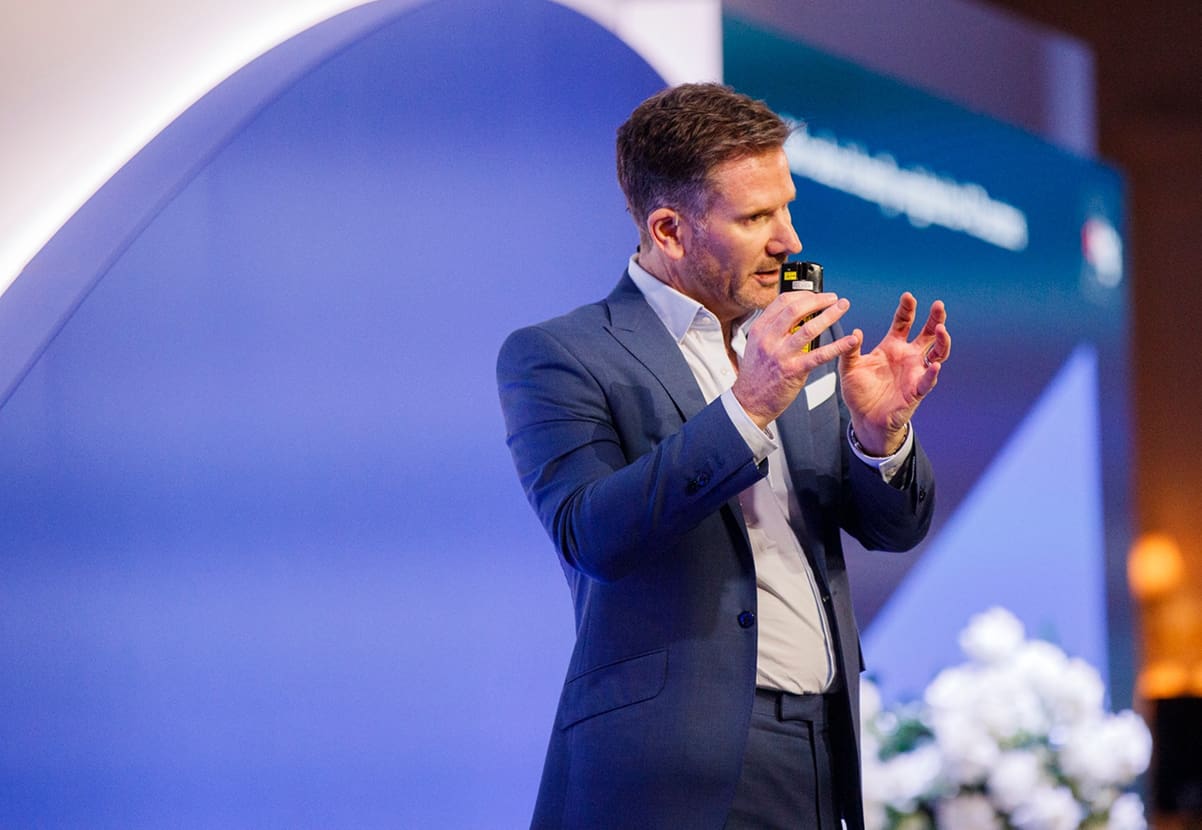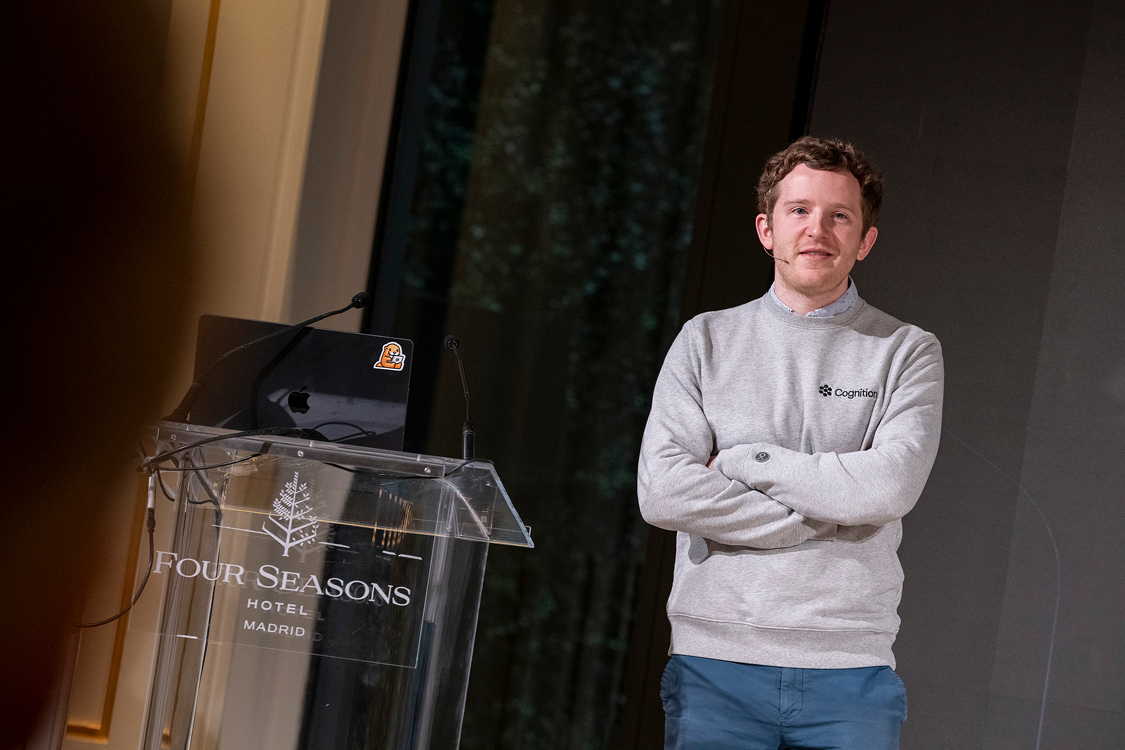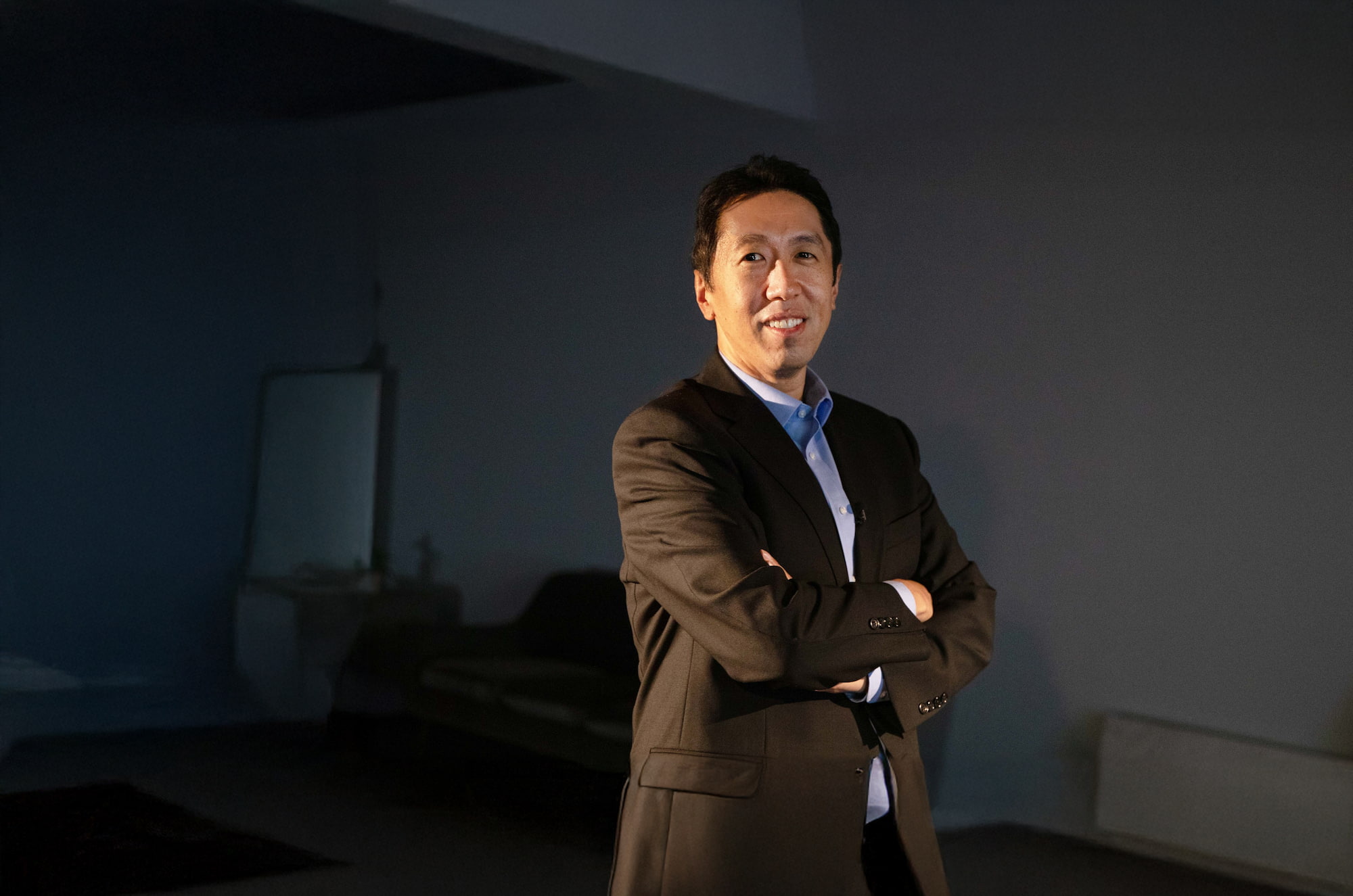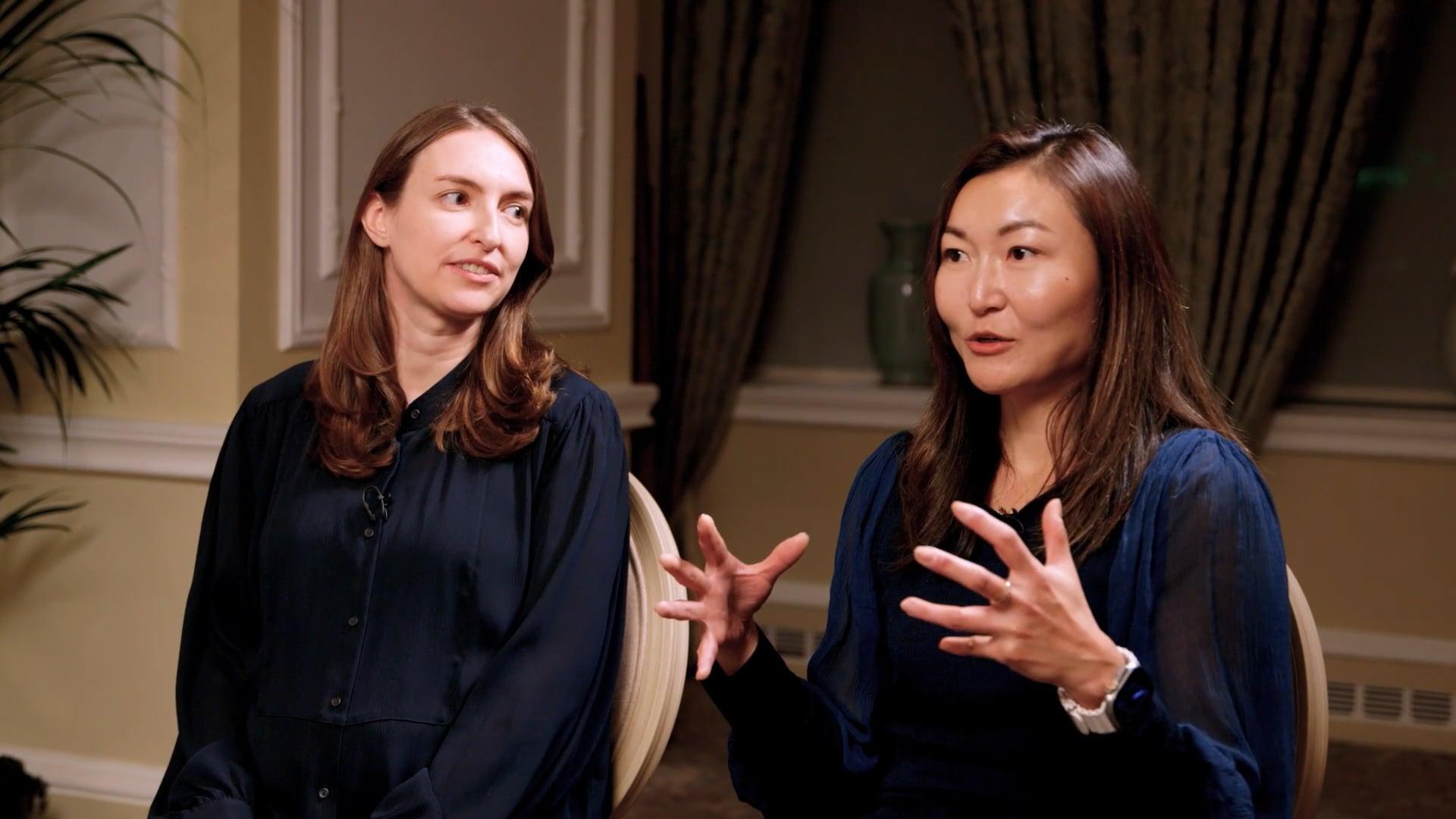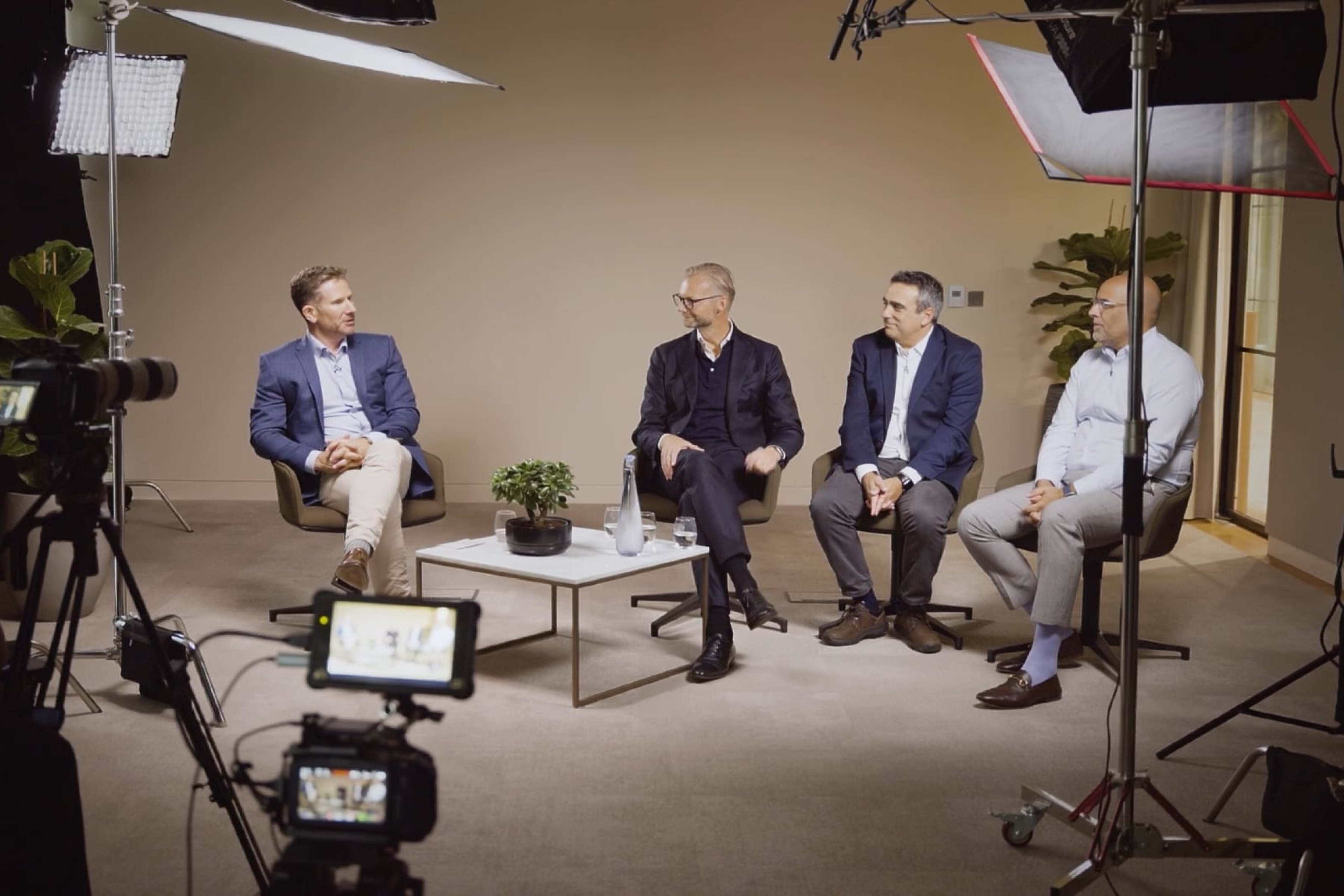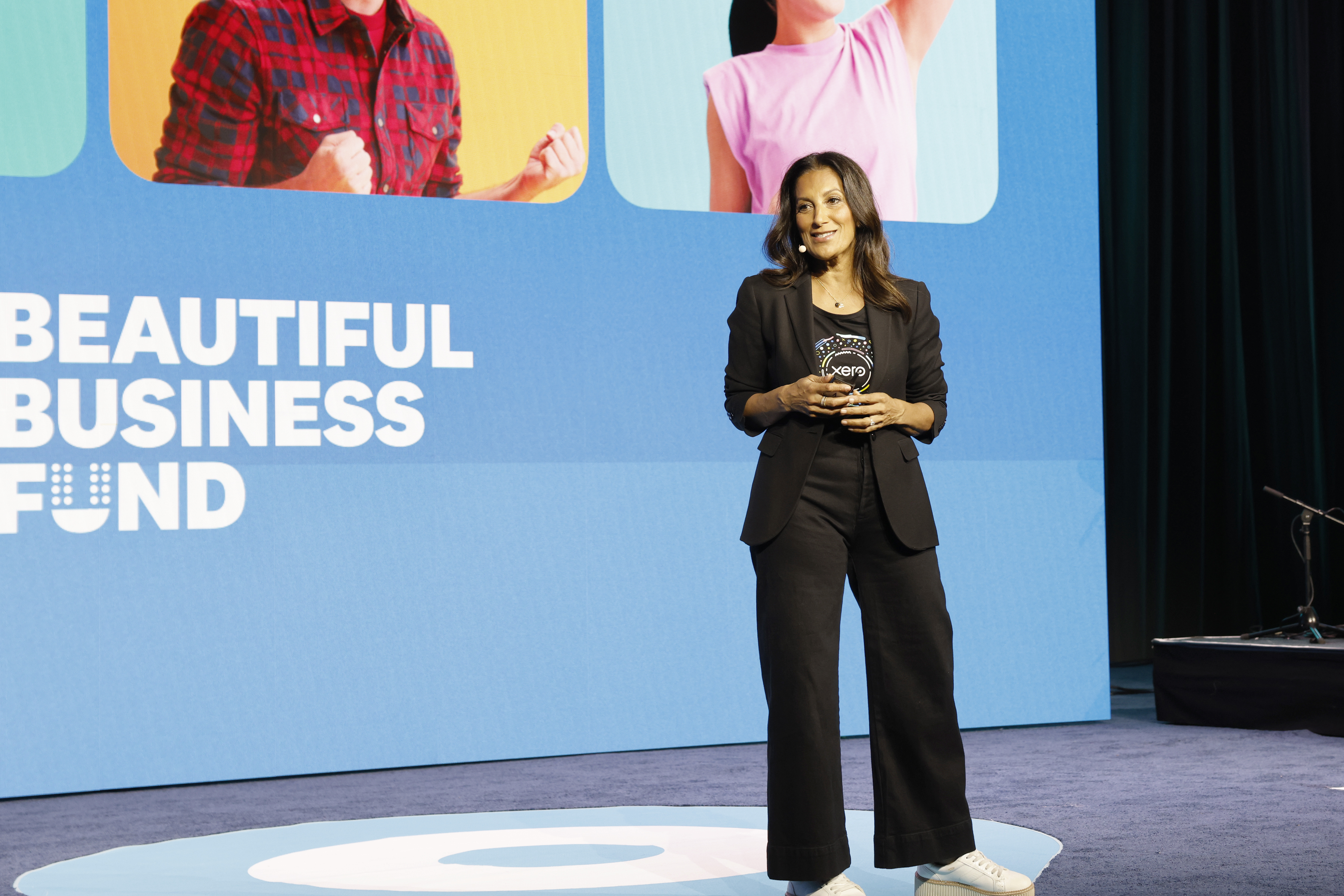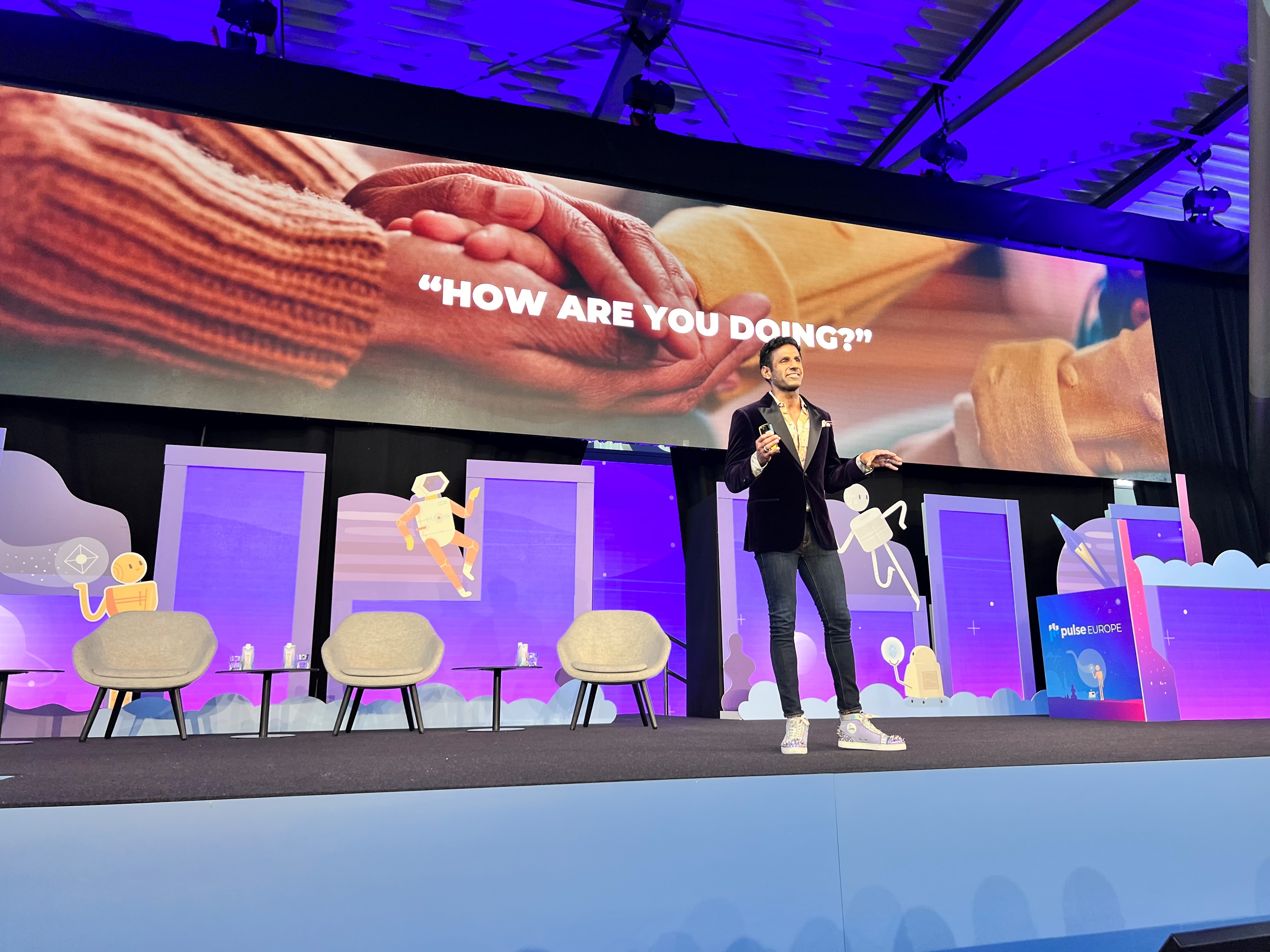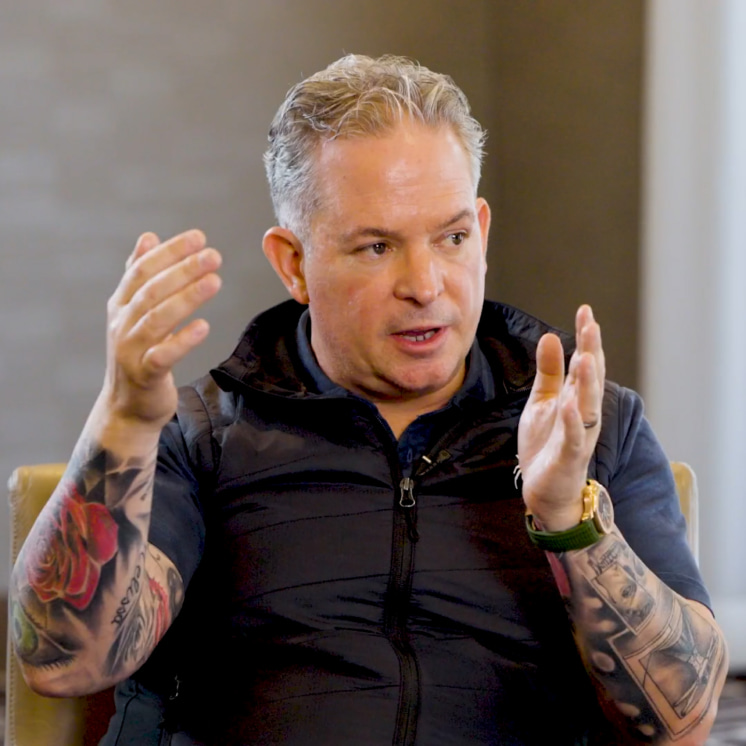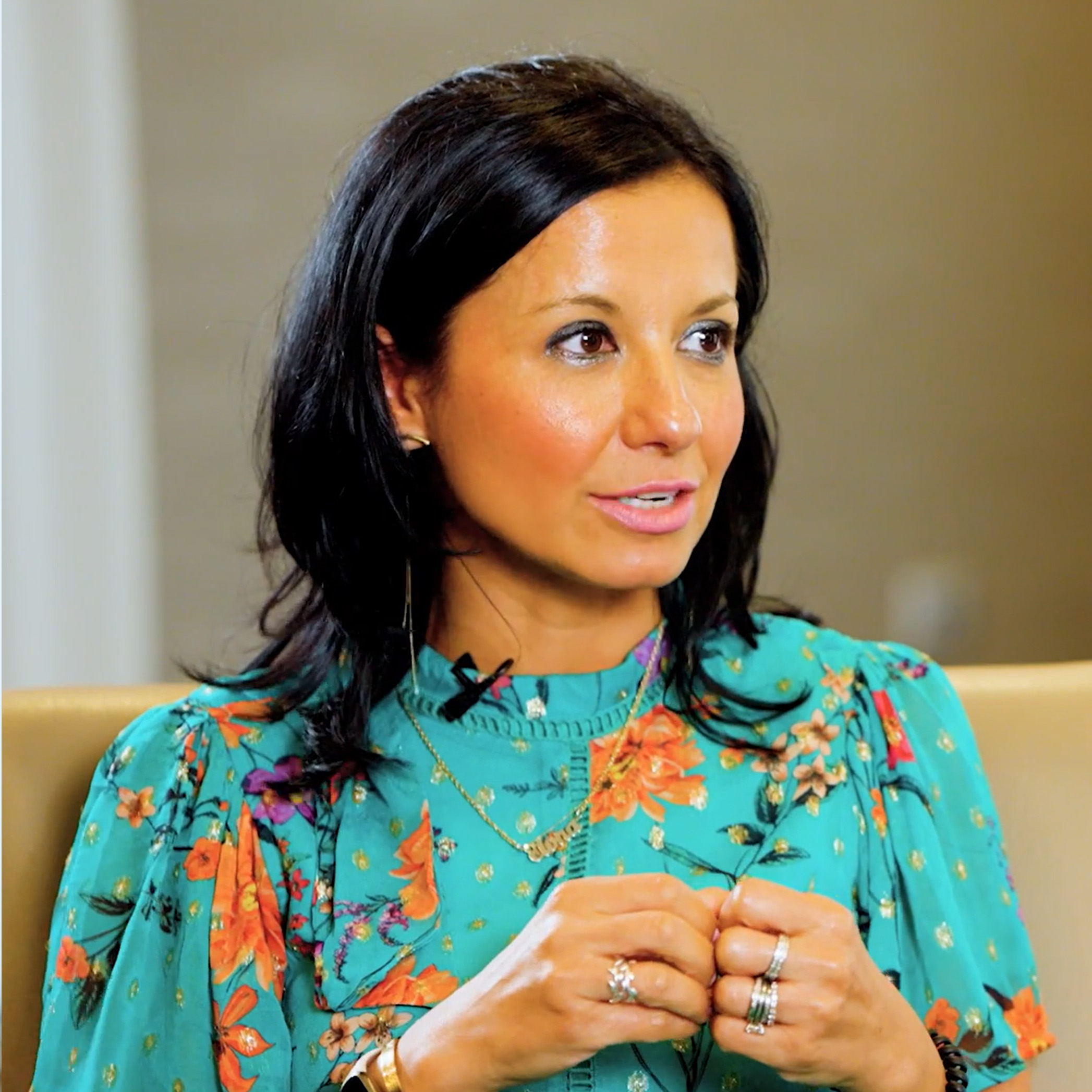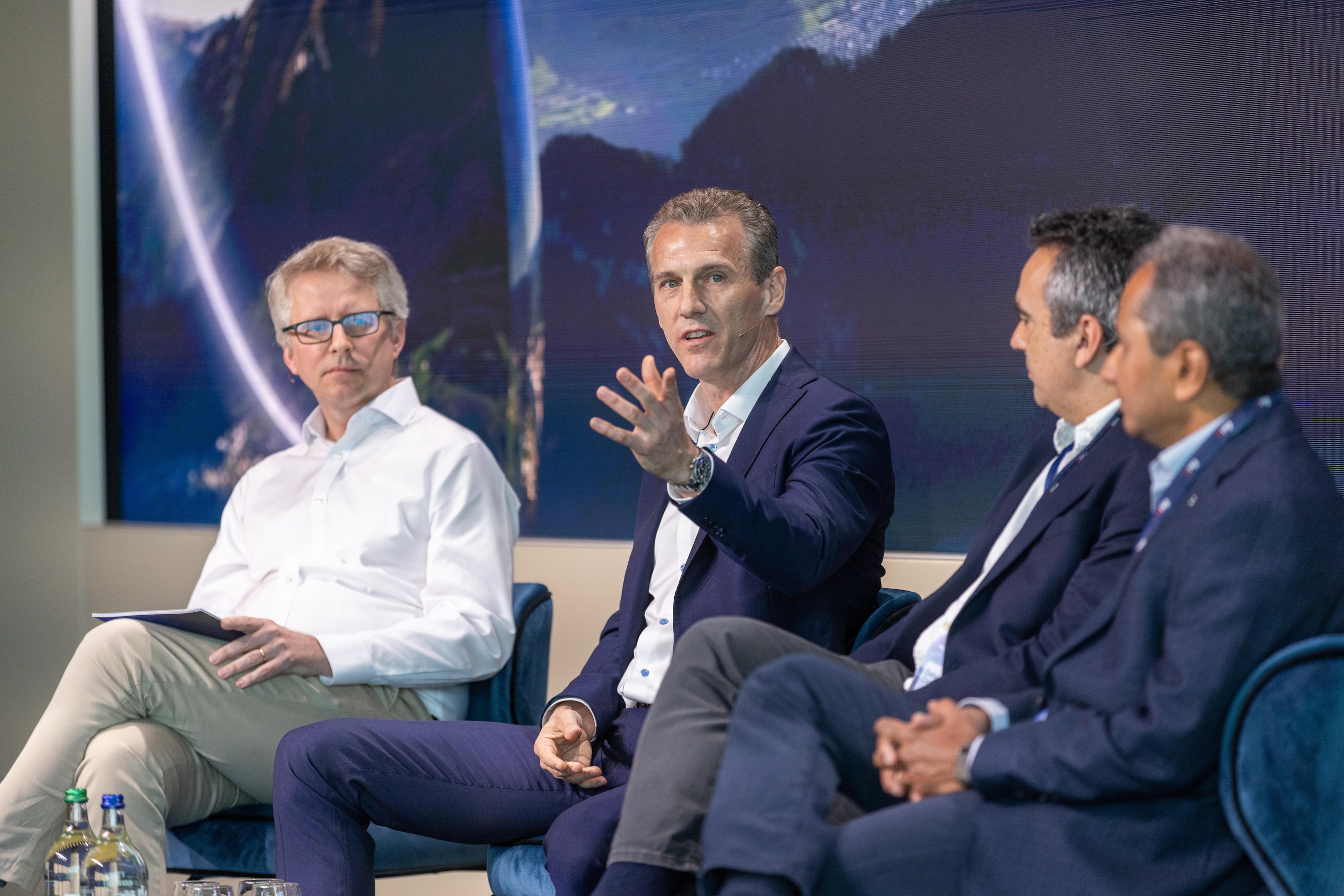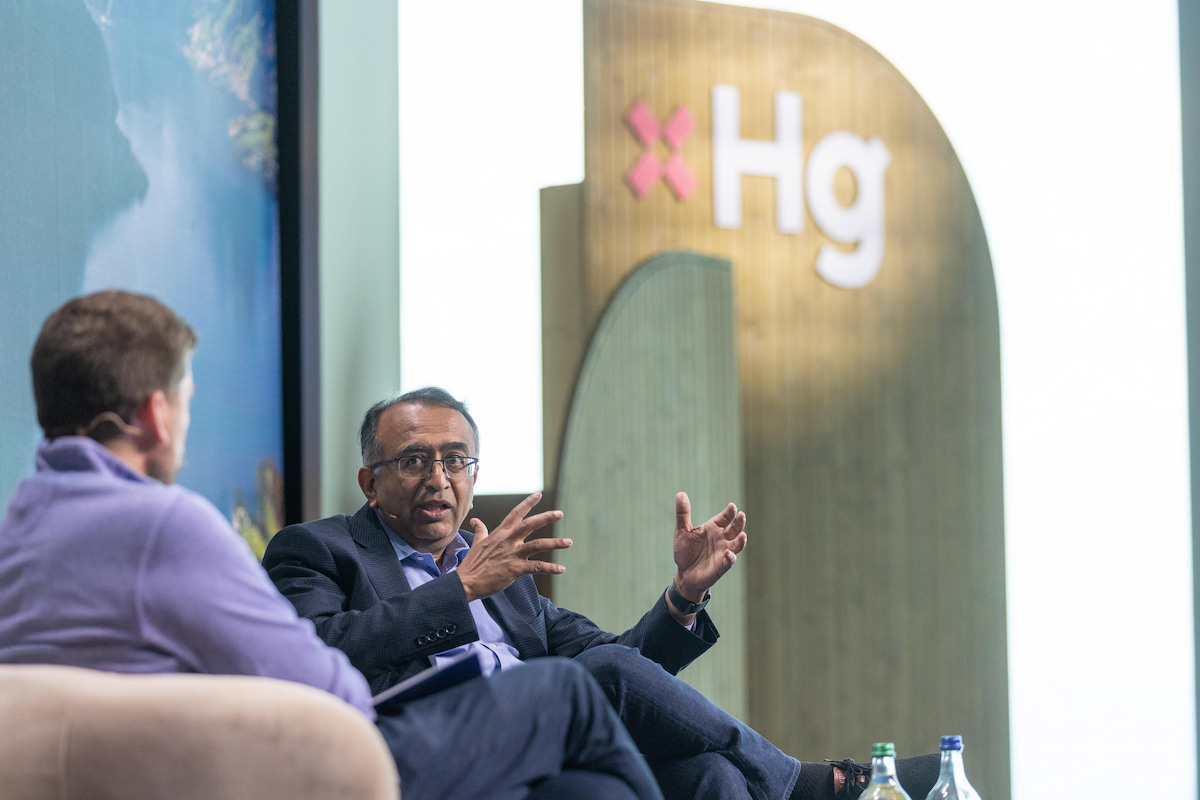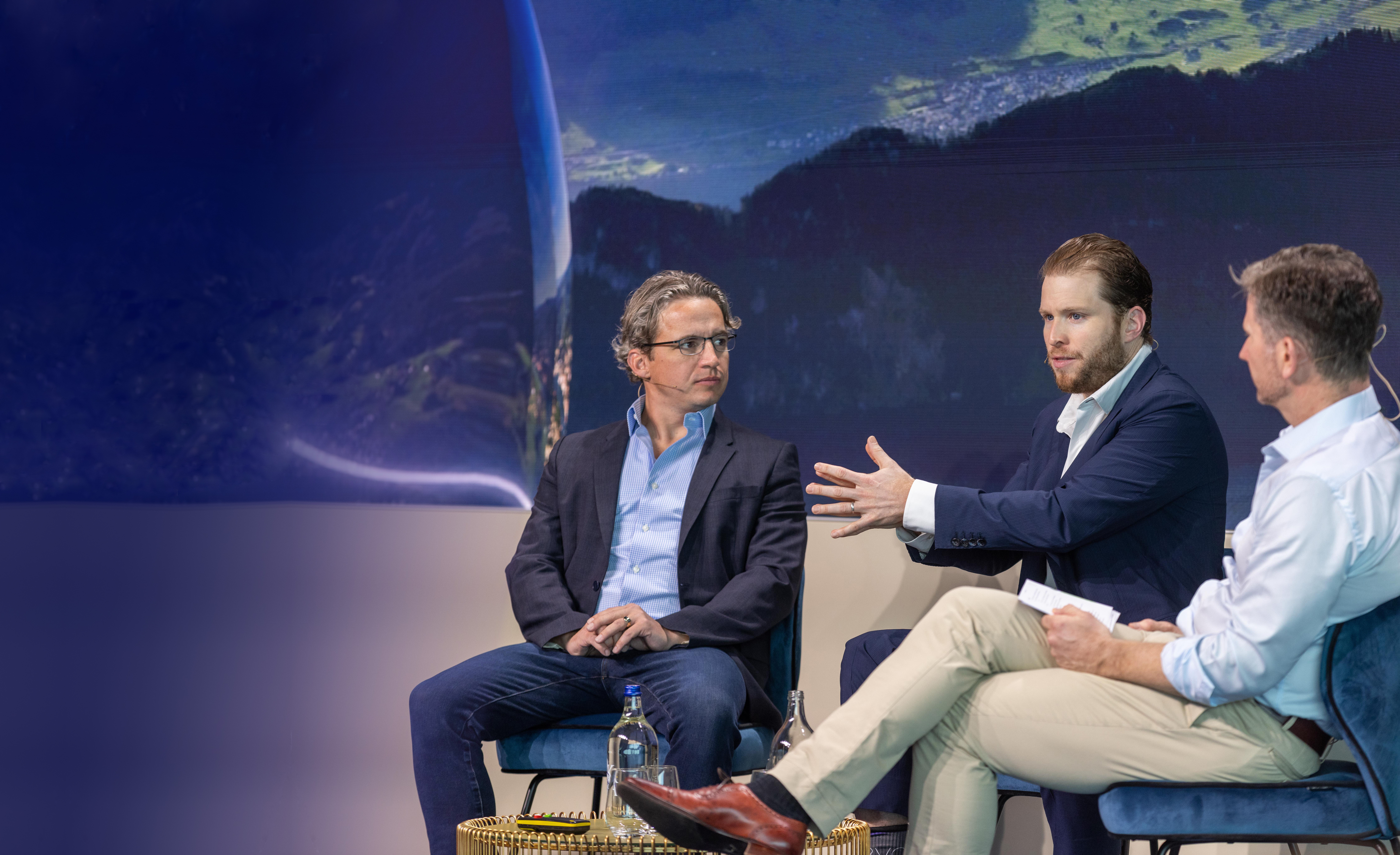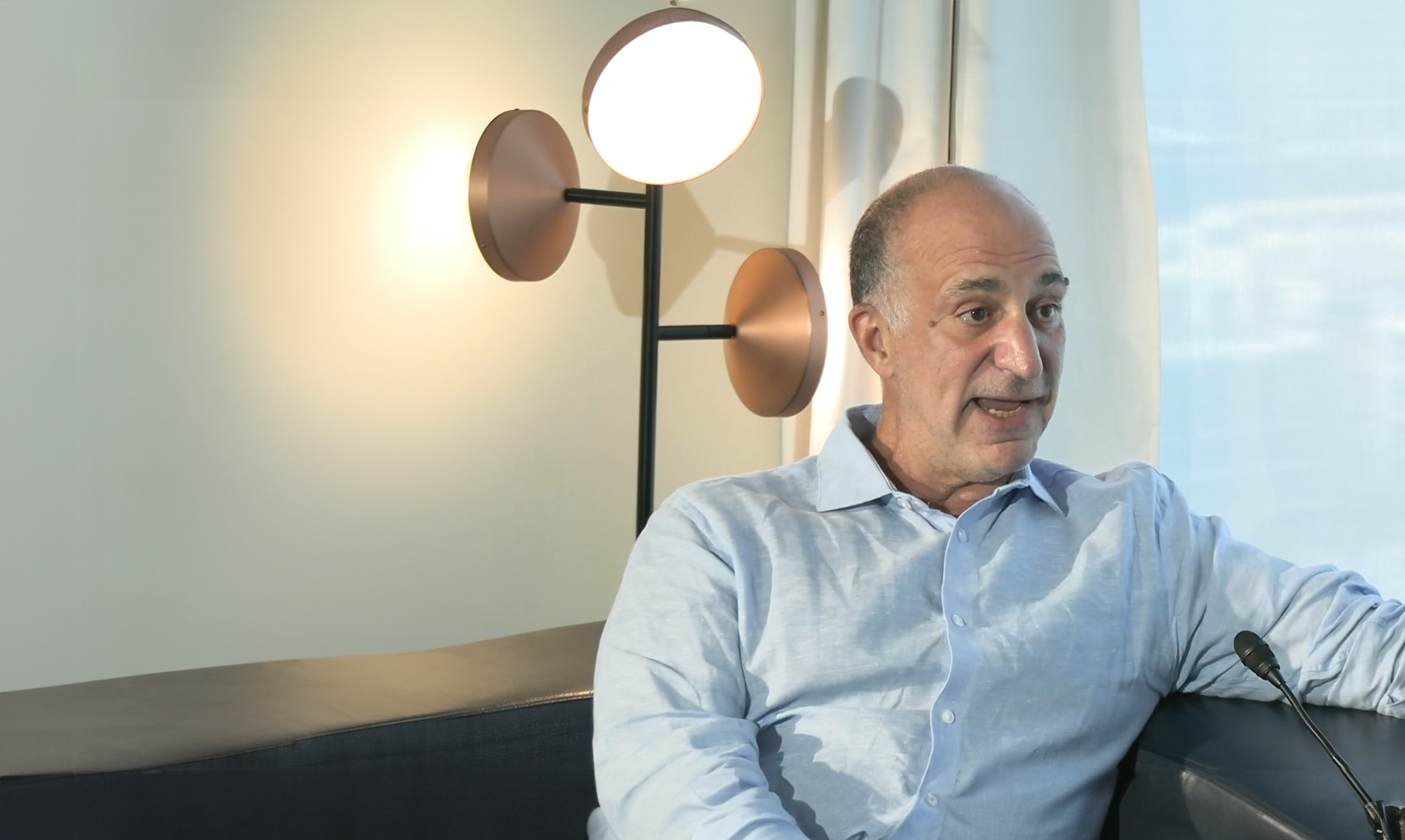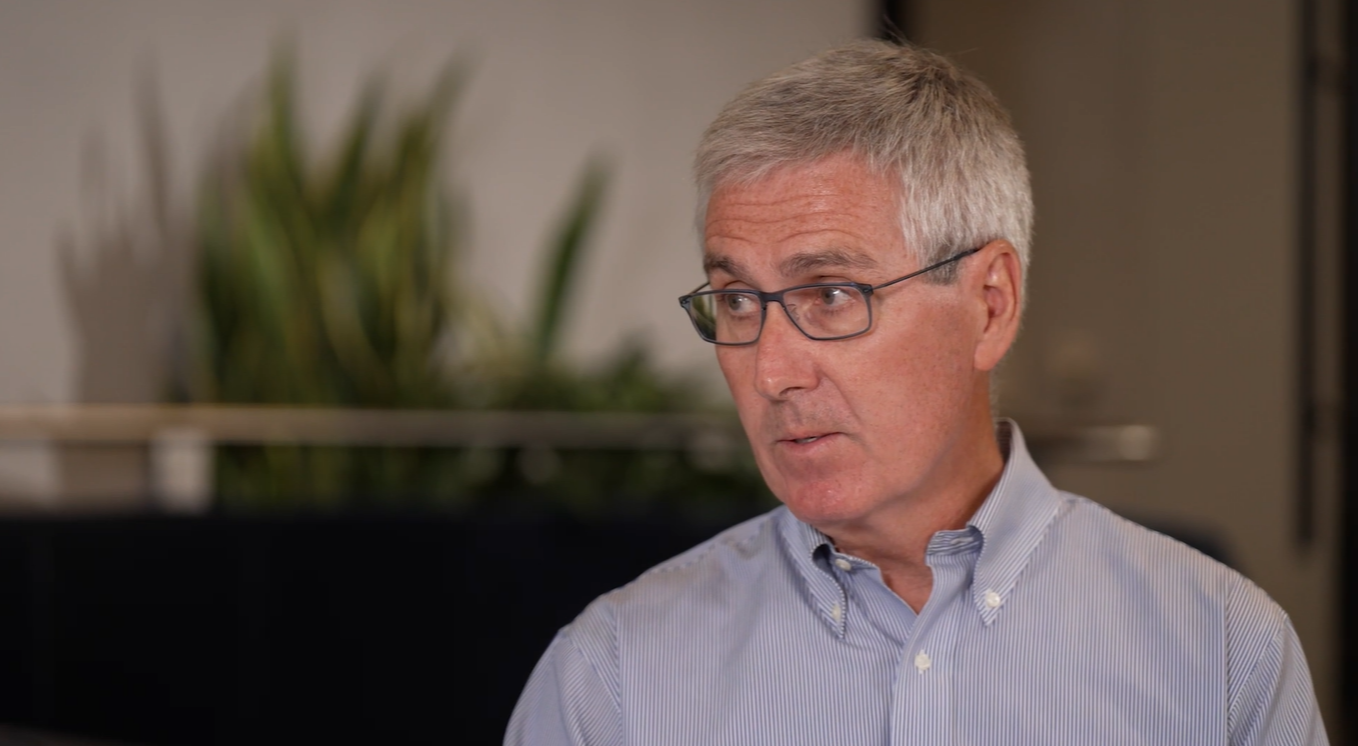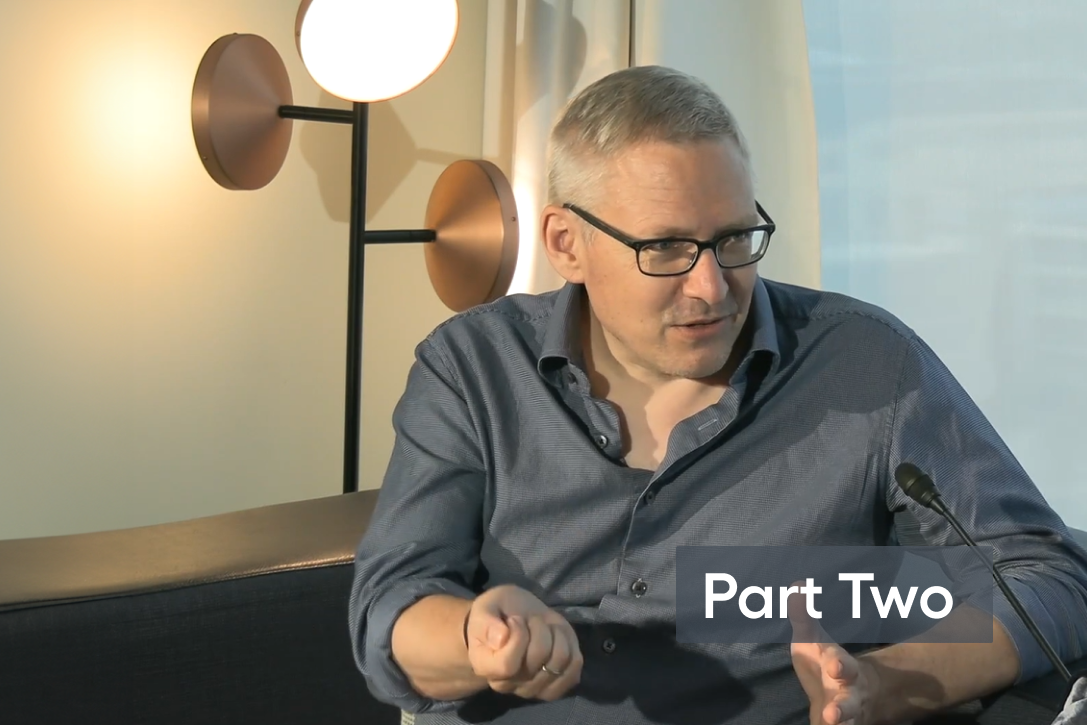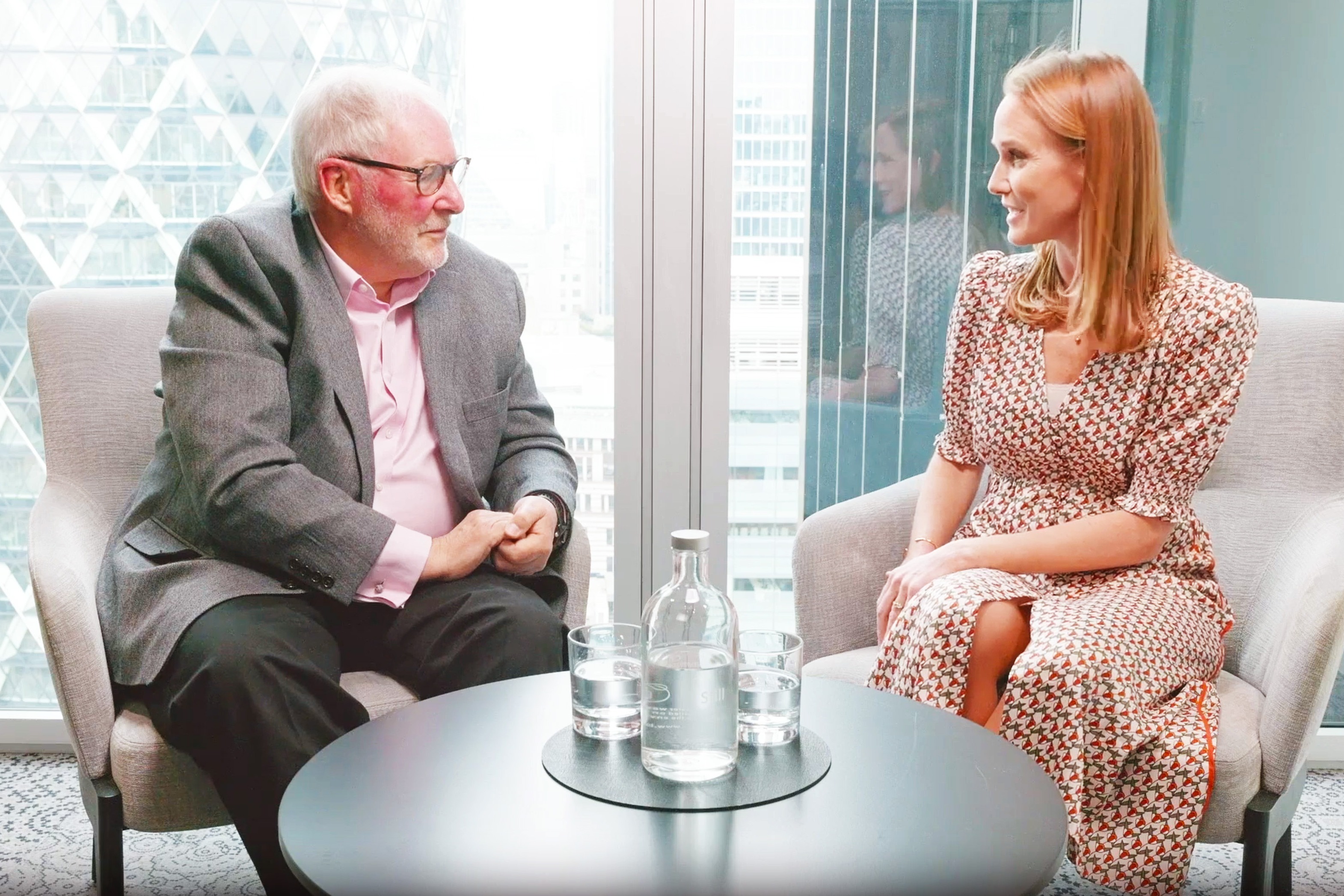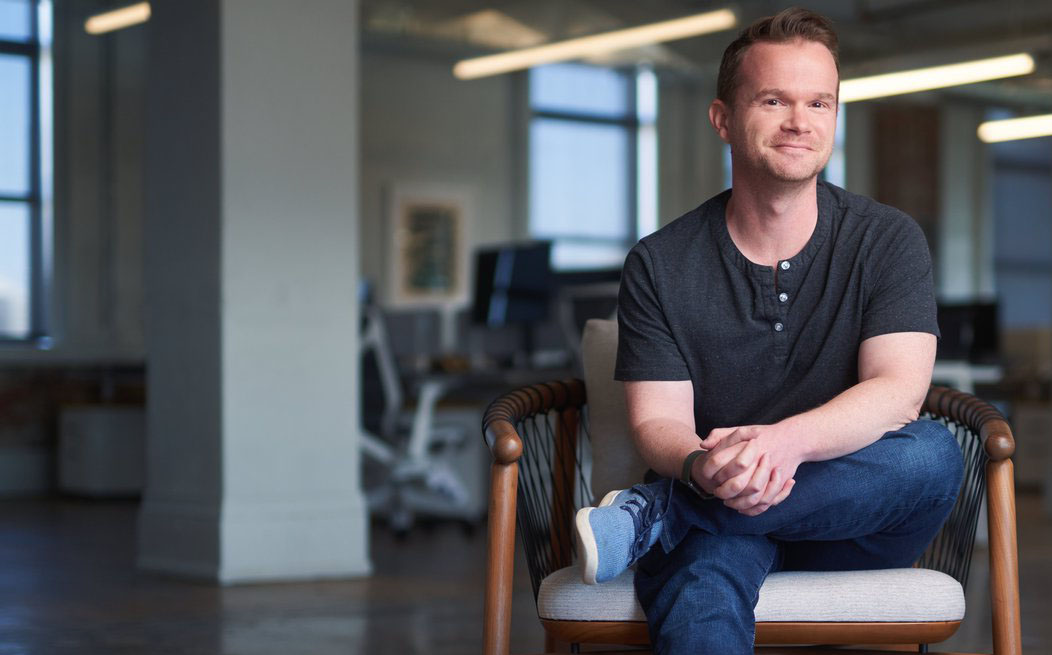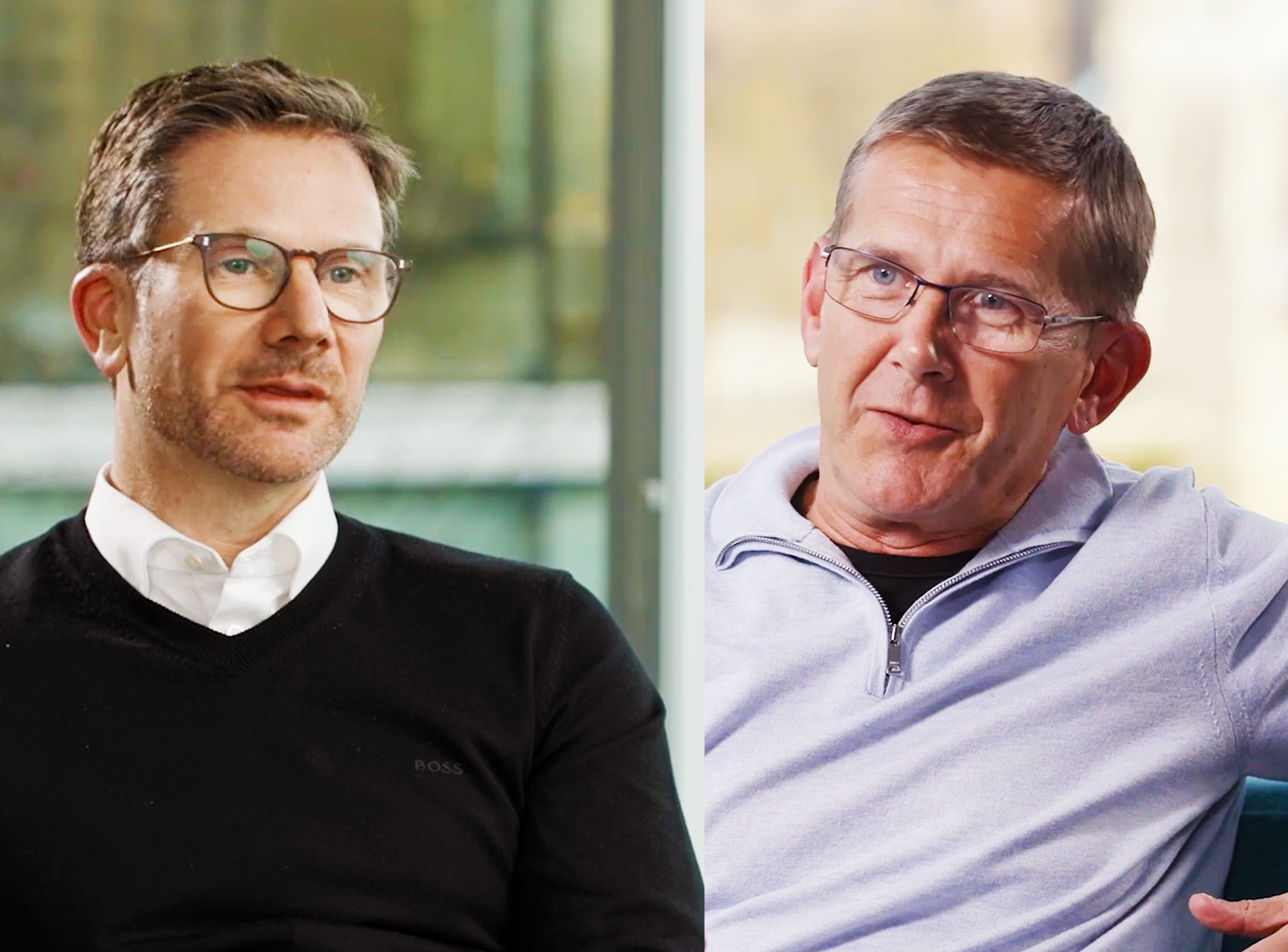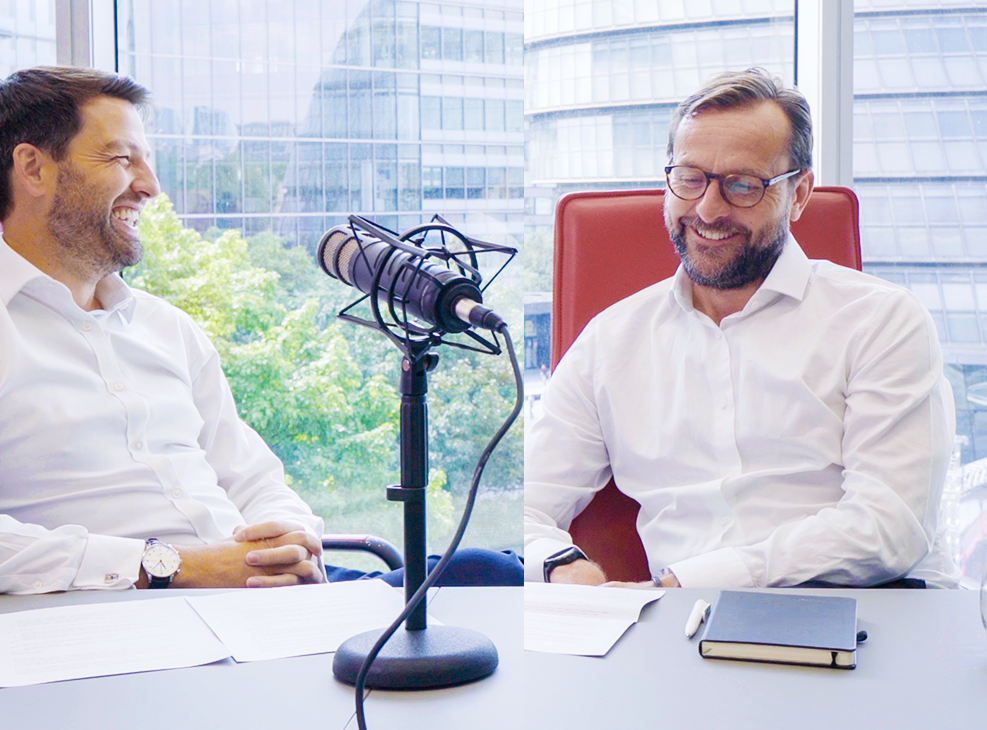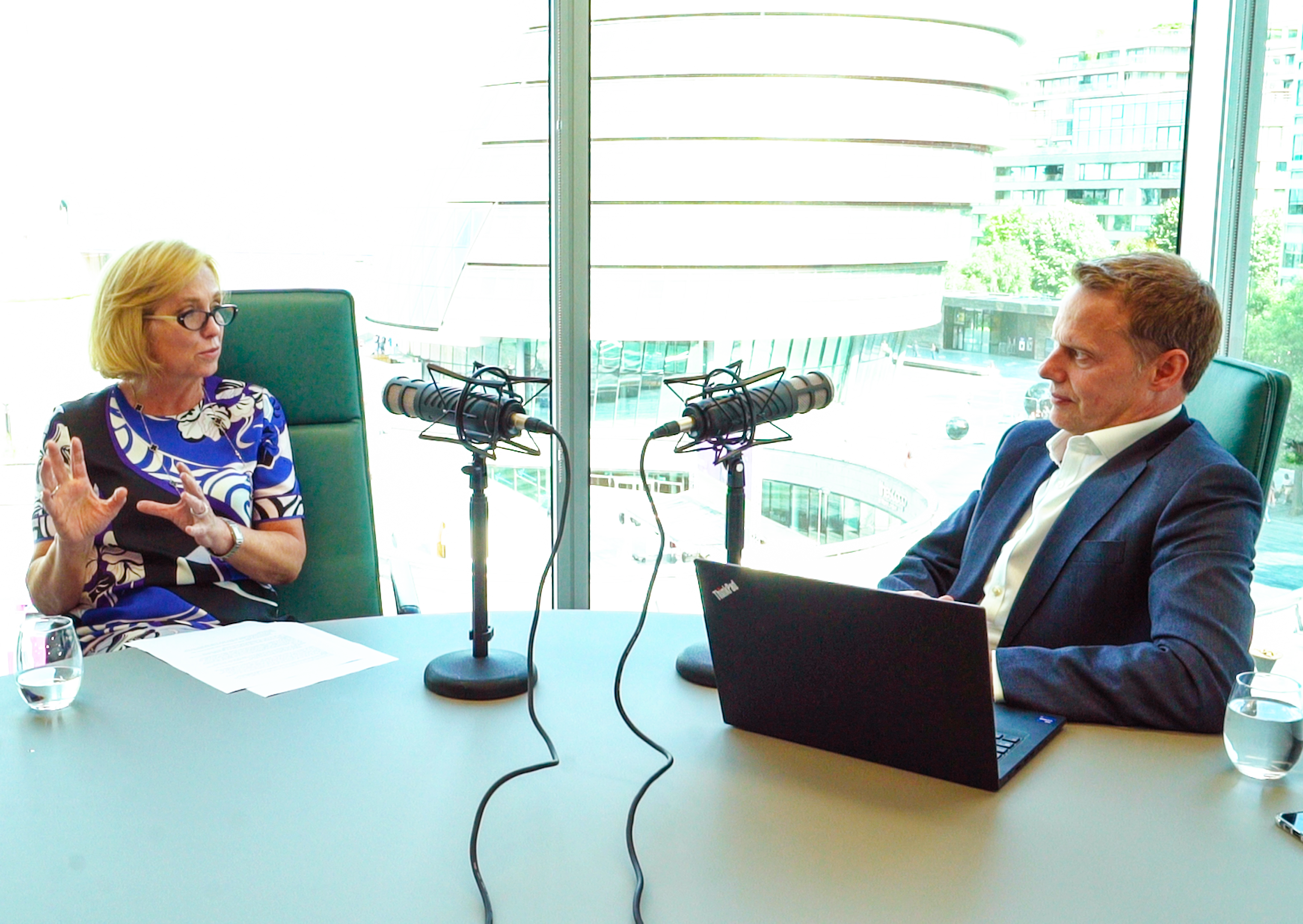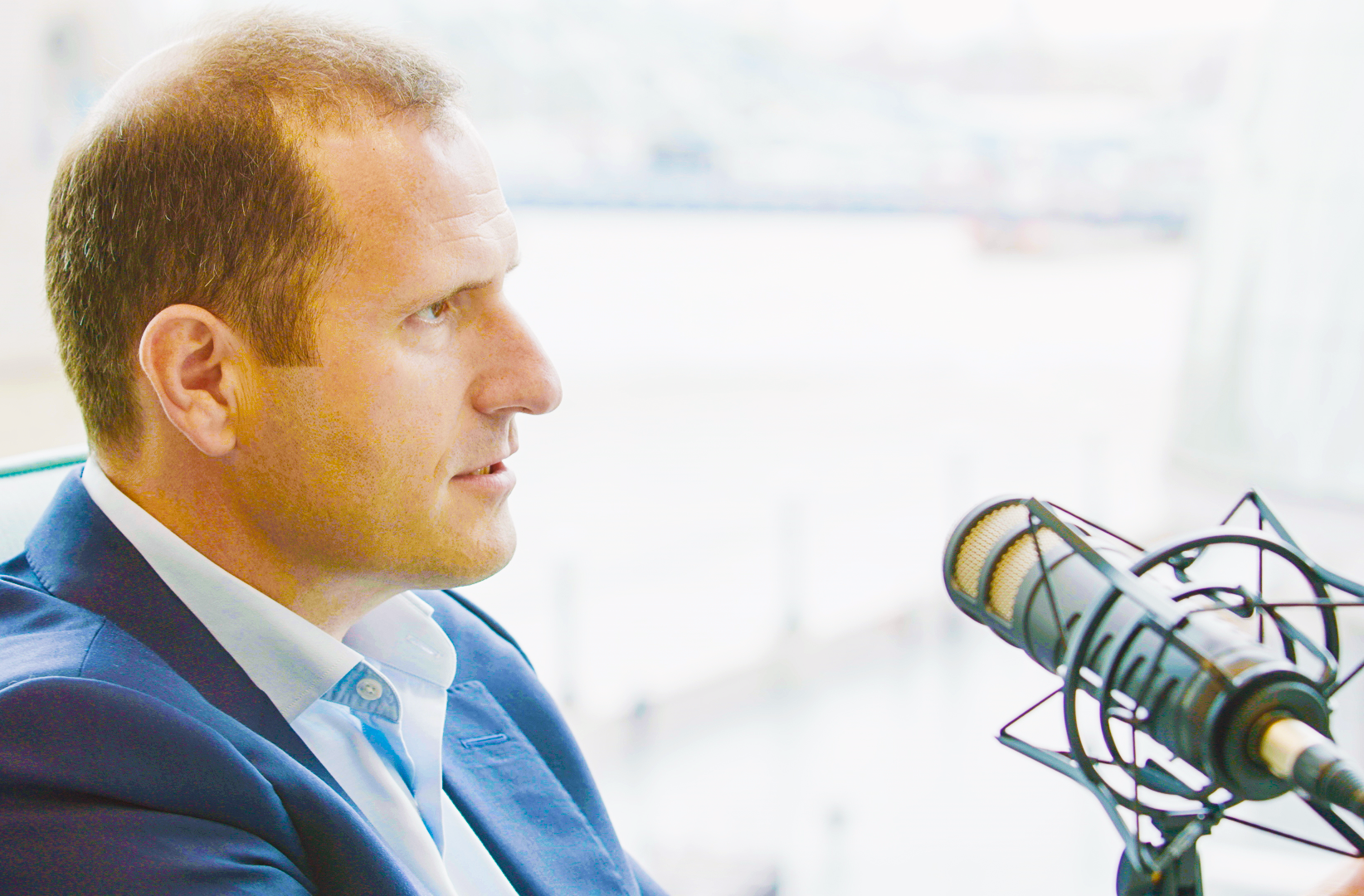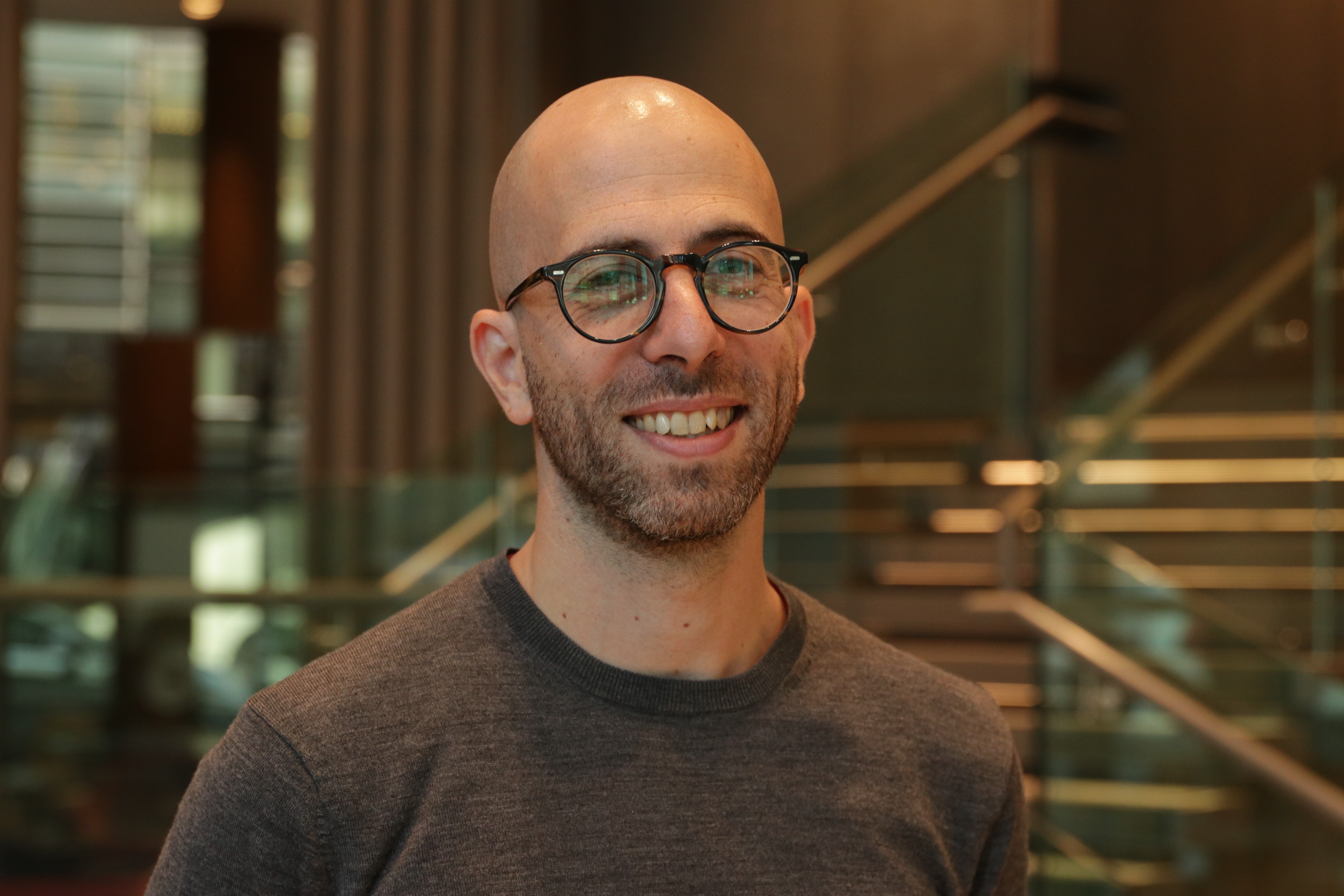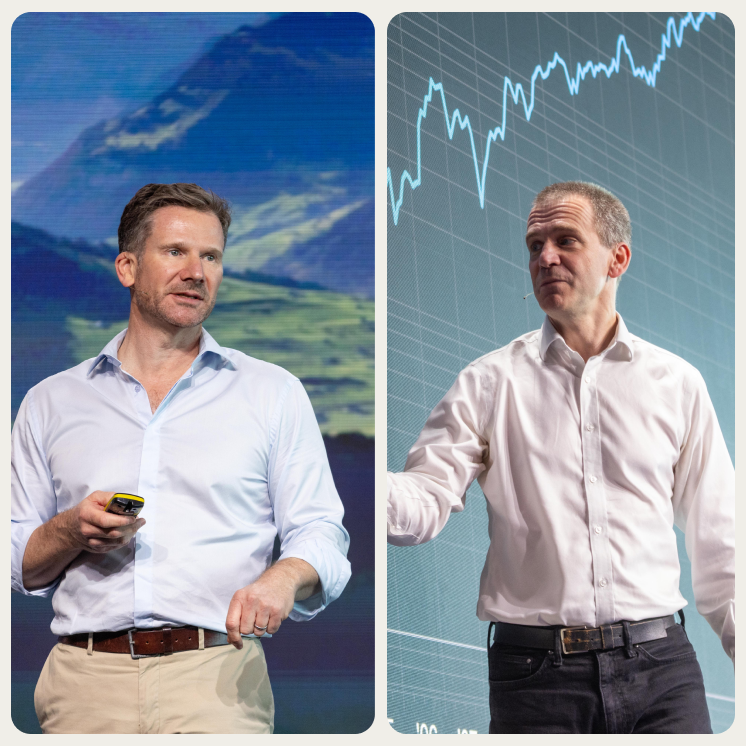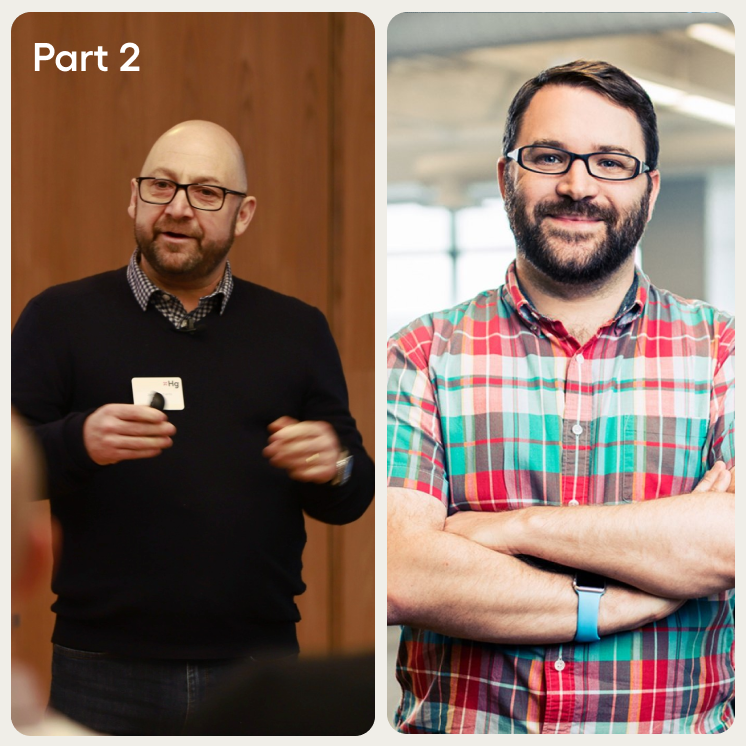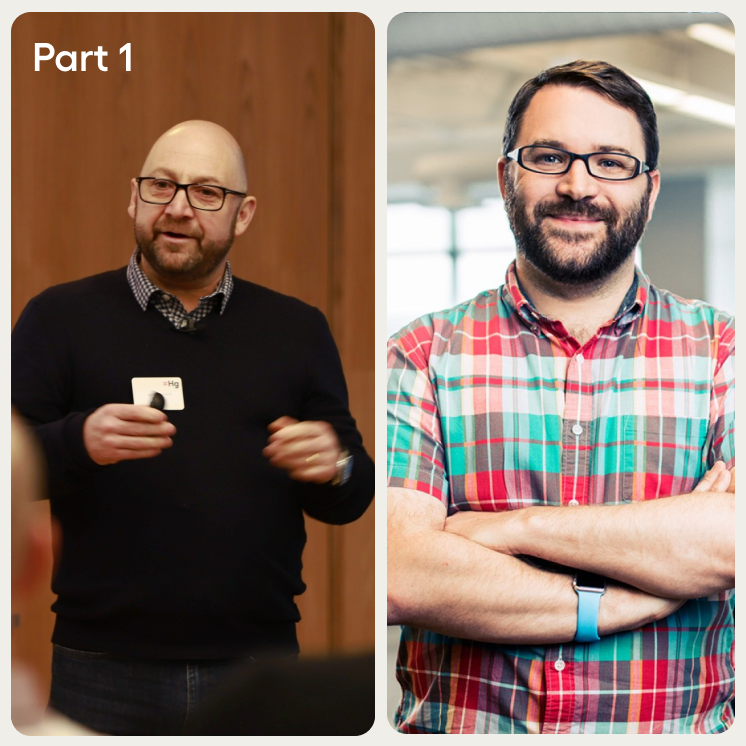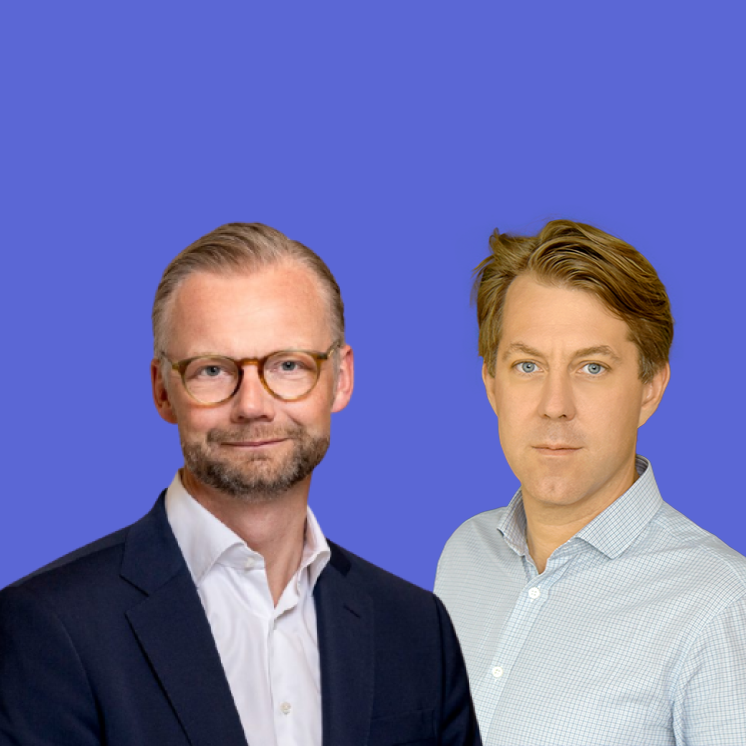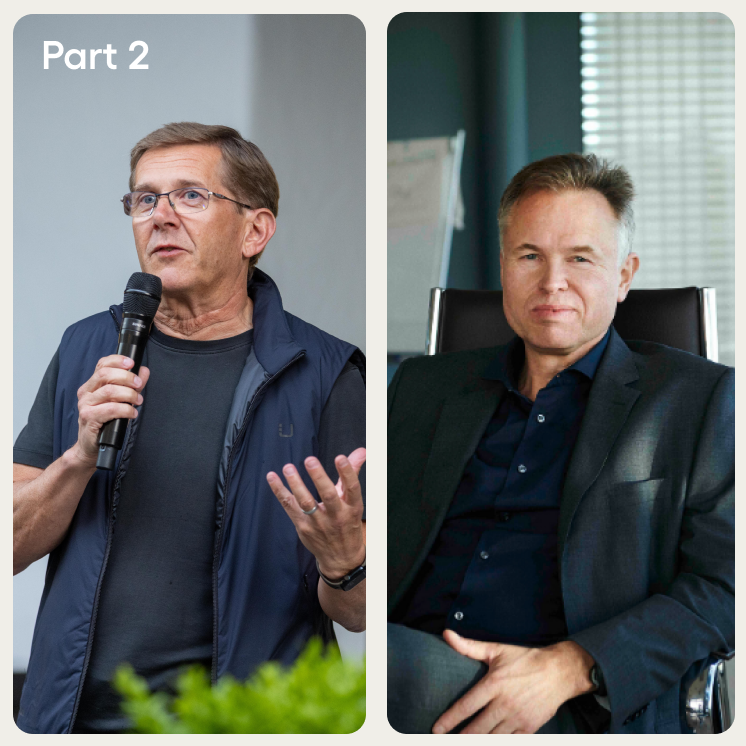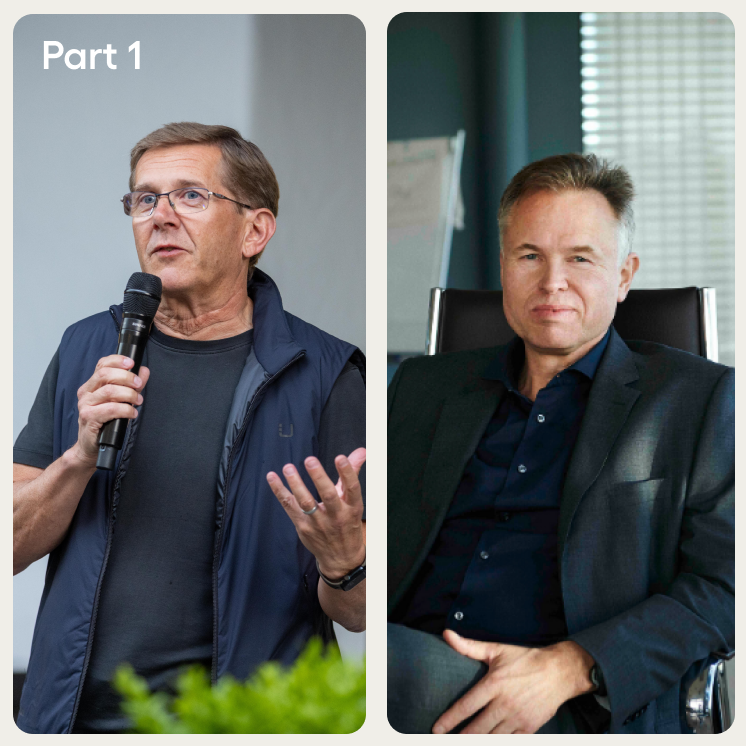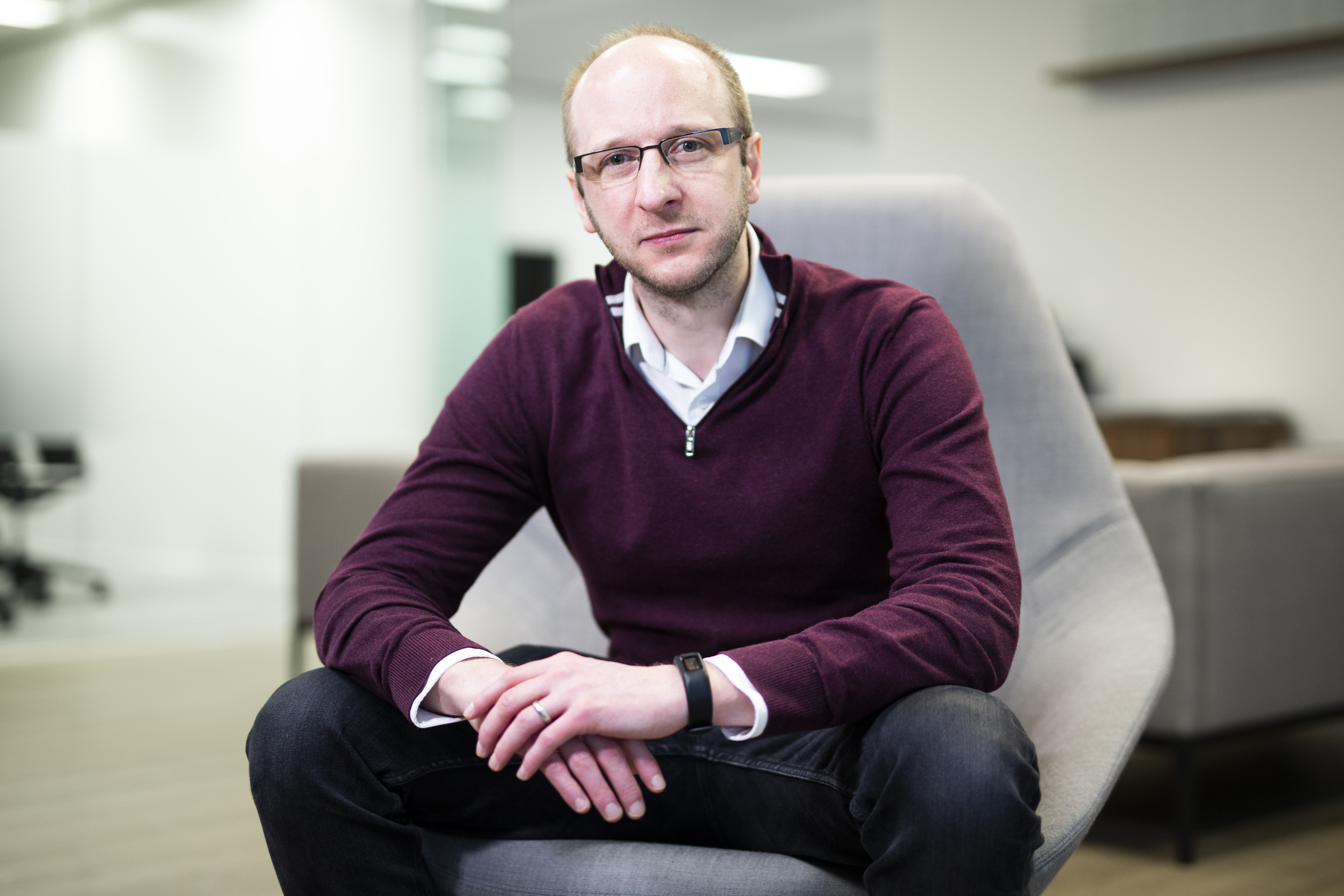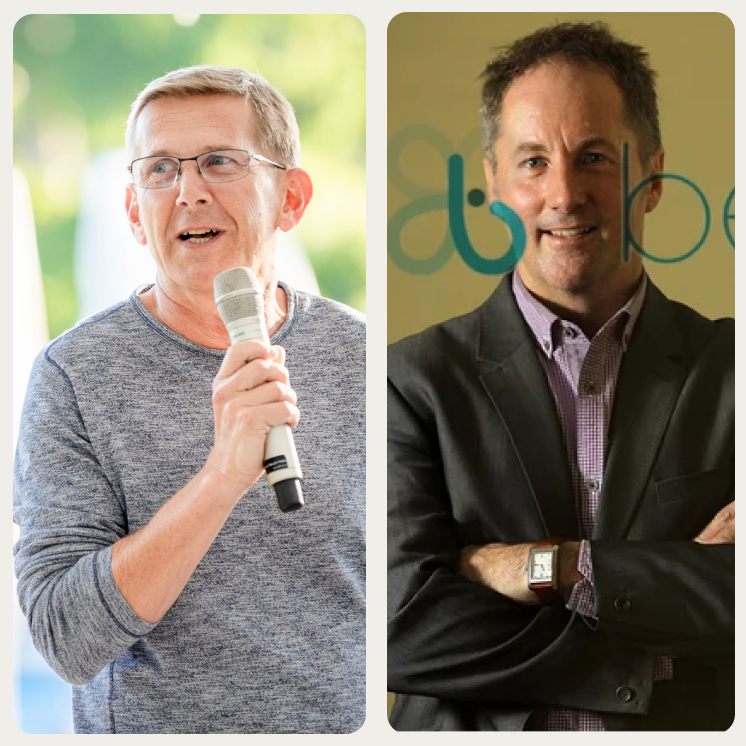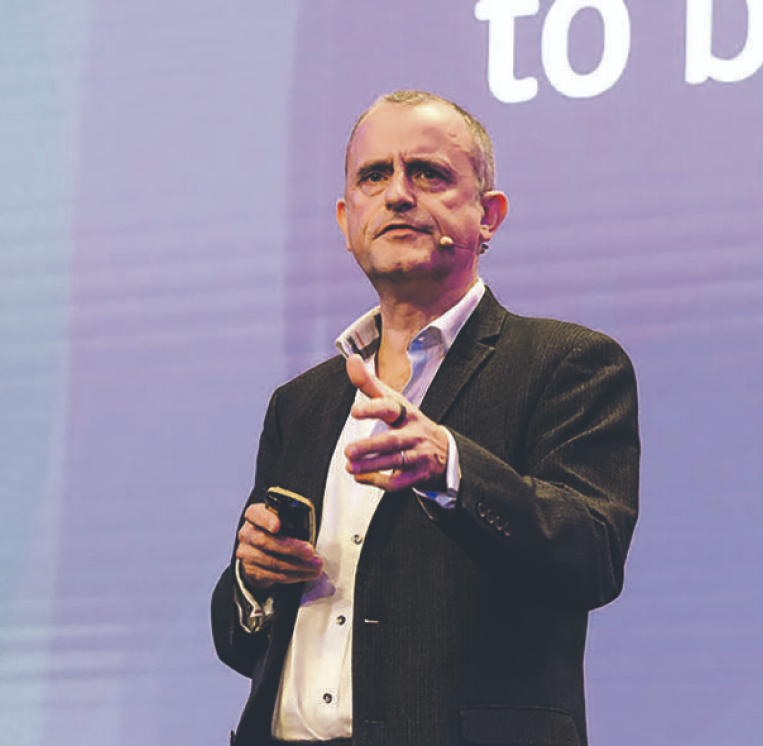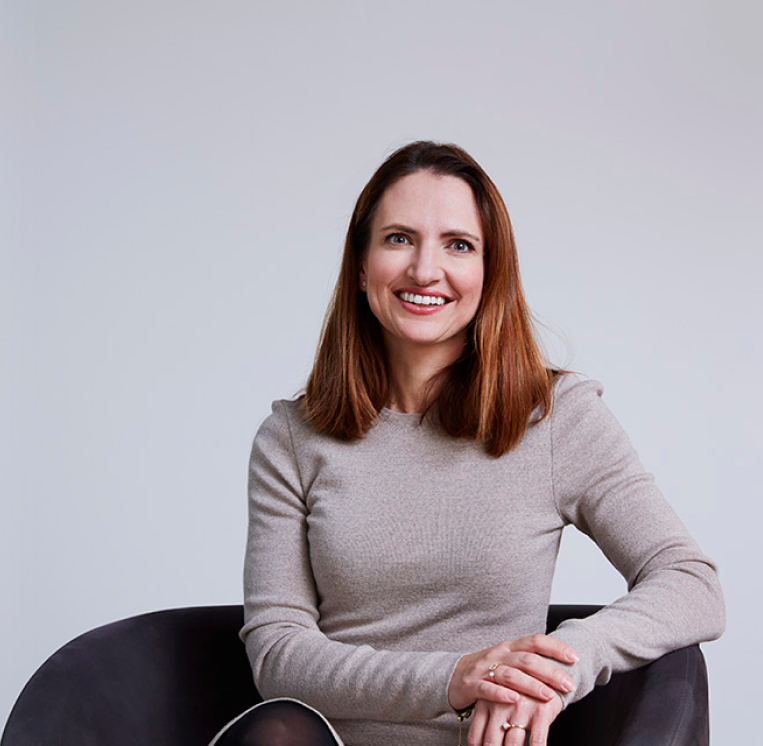Orbit Podcast
Orbit 51
Trust, velocity, and building the Answer Engine: Dmitry Shevelenko of Perplexity speaks to Farouk Hussein
In this fascinating conversation, Perplexity's Chief Business Officer Dmitry Shevelenko reveals how a company barely three years old is mounting the first credible challenge to Google's search dominance in two decades. Shevelenko shares the counterintuitive distribution strategy that led Perplexity to partner with mobile carriers and device manufacturers rather than chasing browser deals, explaining how creating mutual value with partners became their path to 22 million monthly active users.
The discussion centres on execution velocity as Perplexity's primary competitive advantage, with Shevelenko openly admitting that six months from now he'll have a top priority he can't even imagine today. From eliminating internal presentations entirely to making hiring decisions "physically hurt," he paints a vivid picture of how Perplexity maintains startup intensity while competing against trillion-dollar tech giants, offering invaluable lessons for anyone navigating the AI transformation.
Listen on:
Episode Transcript
Dmitry Shevelenko
The thing I have most confidence in is that six months from now I'm gonna have a top three priority that today I have no idea what it is. Literally no idea, not even a clue. And that is my alpha, my willingness to know that there are unknown unknowns coming and that we will find a way to realize those opportunities when they materialize.
Farouk Hussein
Welcome to Orbit, the Hg podcast series where we speak to leaders and innovators from across the software and tech ecosystem to discuss the key trends that are changing how we all do business. I'm Farouk Hussein, a partner at Hg, focused on transatlantic software investing.
Today, we're diving into one of the most consequential questions in technology: can anyone actually challenge Google's in its search dominance? For two decades, countless well-funded startups have tried and failed. But something different is happening in 2025. GenAI has created the first genuine opening in the search wars since Google itself disrupted the market over 20 years ago.
At the center of this battle is Perplexity AI—a company that's gone from obscurity to roughly 800 million monthly queries in just three years.
But Perplexity isn't just another ChatGPT clone with search bolted on. They're building something fundamentally different: an "answer engine" that they believe will replace how we find information online. And in July, they launched Comet, a native AI browser that went GA today.
Well, I'm thrilled to be joined today by Dmitry Shevelenko, Chief Business Officer at Perplexity. You joined the company in October of 2023, frankly, at a time when taking on Google seemed fairly unthinkable. So thank you for joining us today.
Dmitry Shevelenko
Oh, it's great to be here. Excited to keep chatting.
Farouk Hussein
Yeah. So I think we met this Summer at Hg’s Senior Software Leadership Gathering in Lucerne, Switzerland. You'll recall that Jeffrey Hinton was our keynote. Love to hear what…
Dmitry Shevelenko
I lost in the pickleball tournament. That was a painful memory. I still can't let go of…
Farouk Hussein
Yeah, that's right. You did make it to the championship match and you lost to one of our partners, Chris Fielding. I think you promised 50% of the equity in Perplexity if you lost, if I'm not mistaken. Any takeaways from the event? What did you think? How did you enjoy it?
Dmitry Shevelenko
I think a general takeaway whenever I meet with senior leaders is understanding that this time it is different. You know that you cannot be waiting for others to figure out what AI transformation means for your company, for your industry, that you actually have to be leading to not be behind rather than, in other similar transitions, the smart move may have been, let others figure it out and then we'll copy the best practices. The foundational capabilities are evolving so rapidly that everyone needs to be building ahead.
Farouk Hussein
Yep. So maybe a good segue to joining Perplexity. So you've worked at a number of very impressive organizations in leadership roles - like Uber and LinkedIn and Meta. So, you know, what strikes me the most is that, as I mentioned before, joining Perplexity in 2023 did not seem obvious. So what did you see that others didn't?
Dmitry Shevelenko
Well, I was using the product. And I quickly realized I was addicted to asking more and more questions on Perplexity. The last time I felt that was using Uber and I remembered a similar feeling. My year at undergrad was the first year that everyone had access to Facebook for the entire four years. And so there was a pattern match of, like, when I personally get really excited about a new consumer internet product, you know, good things happen.
Farouk Hussein
How did you discover it exactly?
Dmitry Shevelenko
I knew about Perplexity. I was introduced through one of the company’s series-A investors, who thought that me and Aravind the CEO would get along. That's the second reason I made a great bet on Perplexity is I saw in Aravind a leader that had an exceptional capability to learn. And I think that's actually the key trait in this new era we're now all in is: how do you quickly adapt to new knowledge, new capabilities.
I actually first started with a company as an advisor, and I was helping them on some partnership matters. And I saw that after listening to the way I would approach a meeting, the next meeting Aravind would be able to perfectly imitate what I was doing. I'm like, oh, this guy's not going to need me after a little bit, which I'm like, okay, I be better lock in the full-time equity package before he realizes I'm not that that essential. But yeah, an addictive product that I found very useful, an incredible leader and just an understanding that whether it was gonna be Perplexity or somebody else, the way we consume knowledge was gonna shift from links to answers. Kind of the combination of already a great product and a great leader, you know, it felt that Perplexity was very well positioned to be that company.
Farouk Hussein
Got it. And so, if you think about the journey, I think today reported $20 billion valuation, I'm sure you won't comment on that, but targetin. I think I read on Perplexity 200 million of ARR by the end of the year. What fascinates me in the scaling trajectory that you guys have had, you famously told Aravind, I think, that you guys should not chase browser partnerships like Google. Instead you went after mobile, mobile carrier relationships, a-la T-Mobile and Airtel and Bell Canada and device partnerships like Samsung Galaxy. So that seems a bit counterintuitive. Help me understand, why did you pursue that route in terms of betting on and focusing on distribution versus the more obvious technical differentiation play?
Dmitry Shevelenko
Yeah, I think, particularly in a 2023, early 2024 context, any distribution partner that Google had, we were not gonna be able to pay that partner more than Google was. And so when we were looking at differentiated distribution paths, I was always looking for where could we actually improve the core acquisition or retention metrics for our partner rather than just us paying them. How is our one plus one equals three where it's not just, we're an advertiser one way or another, but there's some sort of integration that actually improves the core trajectory of their business.
Farouk Hussein
So bring that to life a little: Samsung, you just call 'em up. Or how did that come to fruition? Well, let's talk about mobile carriers, right?
Dmitry Shevelenko
Okay. The crux of the mobile carrier strategy was picking a leading carrier in a given market and working with them on an exclusive basis, right? Because carriers, they struggle with being seen as a commodity. And so if you have, you know, a special offer of Perplexity - and we would use Perplexity Pro, which is our subscription version, in these partnership structures. If you're able to differentiate yourself through access to Perplexity, that helps carriers tell a much bigger story about why their service stands out against their competitors. And that was, we were trying to find those angles.
I can't speak in more detail about Samsung, but certainly they also have a need to tell a differentiation story. As do other OEMs. And so we would always look at what are the things we can do that legacy incumbent businesses with legacy business models are not as willing to do? Right? We don't have any ad revenue that we will worry about cannibalizing 'cause we don't have any ad revenue. Right? And that's a constraint because we can't pay you as much. But it's a huge opening because there's all kinds of ways we can shape our product. You know, that's both good for our users and our partners.
Farouk Hussein
That makes perfect sense. So, on the note of differentiation in secret sauce and what makes you special, I think you've raised north of a billion dollars from some marked VCs, a-la Xcel, Bessemer, Nvidia, NEA, a lot of individuals like Jeff Bezos, EAD Gill, and that Friedman, Toby Lutkey. So, you know, clearly, you know, people are seeing that this, there is some real special sauce here as I think about it, real time conversational search with citations. You know, that is what is pretty special about the business. Is that an overly simplistic view of the differentiation? How would you summarize that?
Dmitry Shevelenko
So when I think about the near and mid-term future, the thing I have confidence in is that the most scarce resource that will exist in the online economy is trust. And so there’s a lot of companies building an AI. What we're building and what we're focused on is building the most accurate AI. We think that is what knowledge workers, whether they be in the consumer context or an enterprise context, that is what they want. That's what they expect, that's what they find useful.
Farouk Hussein
An answer engine.
Dmitry Shevelenko
Well, an answer engine where you actually can trust the answer. Trust, right? And that's why we invested a tremendous amount of resources in building our own search infrastructure, our own index, our own ranking, our own retrieval system. And it's all optimized not for 10 blue links. It's optimized for what gets fed into an AI. Right. And so, when we think about where we invest technical resources, whether it be building search infrastructure, whether it be orchestration, post-training, routers, it's all about accuracy. Because we think that's gonna be what matters the most. Not only now, but will continue to matter. 'Cause the underlying models are gonna keep getting smarter. You have to assume that that's a given. But what sources, what grounding is fed into them that, you know, there's nothing you get for free there. That's where we have to keep investing.
Farouk Hussein
And then how do you think about the evolution of the competitive landscape? So, Claude, earlier this year, launches Claude Search, Open AI upgrades Chat GPT Search, and then, within that, again, using Perplexity, I think of AI traffic. Chat GPT has 78%, you guys are 15-ish %. And then Google has gone all in on AI overviews and AI mode. So it seems like competitive landscape getting tougher. And I recognize the confluence of things you just mentioned before and being really focused on that trust element. But how do you think about that evolving competitive landscape?
Dmitry Shevelenko
Yeah, I mean, it's flattering when people realize that what you've been building is the right thing to build and they try to build alongside that
Farouk Hussein
Imitation is the most sincere form of flattery.
Dmitry Shevelenko
Yeah, exactly. So I would say, what we look at as our key metrics are queries per day and retention. I think why we've had the success we've had with getting investors excited is, when they look at those metrics, they see queries per day skyrocketing, and they see retention remaining strong. And usually it's as you expand your user base, your retention starts to fall off because you're acquiring lower intent users. And we actually see, in many cases, the opposite happening that, as we invest in the product and bring on more users, users stay around for longer. Ultimately this isn't a 20, 25 horse race we're building.We're aspiring to build a generational company. So we're less focused on immediate market share today versus building for that long-term trajectory.
We're obviously honored by the growth we're seeing and trust that users give us and partners give us.
Farouk Hussein
That's what, 20% month over month right now, directionally?
Dmitry Shevelenko
Yeah. I think that's the last public number we shared, and it's probably a bit more conservative than where we are now. And that's great. And so those are the health indicators and even folks that are adding search grounding into their products to try to catch up to us, they don't have their own search infrastructure. So they're using legacy search indexes that were never built for use by AI. And when we talk to users and they explain why they actually ask us, “why is it that I actually find the answers are better on Perplexity?” It's because everything we do, from the search, from the orchestration, it's all about that accurate answer quality.
Farouk Hussein
So how do you measure that in terms of the accuracy or the speed of the accuracy? Like, how do you think about that? How do you quantify that in terms of the ROI or perceived ROI?
Dmitry Shevelenko
So I think retention is actually a very honest barometer. We also run manual evals all the time, and then we also run automated evals. So I think the intersection of those three data points gives us a good sense of the progress we're making.
Farouk Hussein
Okay. Let's talk about browser wars. So I think in August amidst ongoing antitrust concerns surrounding Google's search monopoly, or at least perceived monopoly, you bid to buy or your company bid to buy their Chrome browser for a whopping 34 and a half billion dollars. So I was pretty surprised because looking to buy part of a business that you've publicly said that you're going to disrupt, did you guys have the financing lined up? Was that a serious offer in bid? Is that more, you know, PR marketing? Maybe shed some perspective and light on that?
Dmitry Shevelenko
Whenever there is a very unique asset that could become available - and at that point, we didn't know what the antitrust ruling was gonna be - the question I would have is why wouldn't you try to buy it, right? I mean, that's a billion user product. There's very few of those on the internet. And so the ability to overnight serve a much larger audience and give them access to Perplexity and really create choice for all kinds of other products, that was something that we thought it would be foolish to not make an attempt. Now, obviously it was always gonna be a long shot and Google would fight tooth and nail even if the antitrust ruling was more against them.
The thing that surprises me is, people ask about the financing. That's actually the easiest part of this. There's so many investors that would love to own, again, a billion user product, same as with TikTok, by the way. We thought it would be a mistake to not attempt it. Our plan was not assuming that would happen. We're very committed to Comet.
Farouk Hussein
Any heuristics. I mean, TikTok looks like it's gonna settle out at around 14 billion for the US division, 34 point a half billion. Any heuristics on why that number?
Dmitry Shevelenko
We looked at - it wasn't our bottom up analysis. We looked at where industry analysts quoting the price of Chrome. And that seemed like a reasonable starting point.
Farouk Hussein
Okay. So that notwithstanding, you've gone on to launch your own native AI browser, Comet, which I think went GA today. So that's really exciting. So some schools have thought “genius”, and I think that's most schools of thought, others may be a little bit distracting in terms of focus. Just help us understand why now, why not fully win the search battle? Just any kind of perspective on that 'cause a lot of other people have tried and been unsuccessful in terms of displacing Chrome or launching their own browsers like Microsoft despite kind of owning the operating system. So how do you think about that?
Dmitry Shevelenko
I think to build a truly useful personal assistant, you need context. And you need a lot of personal context for a user and a browser is integral to that, right? Our aspiration is to really be your second brain and a browser - because you're already logged into to all your favourite websites, all the services you use in it - there's just much richer context and grounding that we can use to serve a user better. So I think that is it, it's not there, there's kind of the first level of, well, why do this for distribution? Right? If you, in your own browser, you're the default search engine, and so your query volume goes up. And that's absolutely been true. We, we see that Perplexity Pro pro users, once they started using Comet in addition to Perplexity Pro, their query volume would increase by factor of three to four. Which is great. And then we were also seeing that north of 50% of users who got access to Comet were setting it as their default browser. Which again, was incredibly encouraging for us because, think back to your own history with browsers. When's the last time you changed your default browser? It's not like a common... Exactly. Right. We're seeing even higher retention for Comet than we see with core Perplexity, which already was very high. So the thesis that you could build a better, more useful browser, that's been validated.
I think we're just scratching the surface of what it means to have an AI product that is truly personalized and proactive. And I think some of what we're gonna start talking about with background assistance and the service evolving, I think more of that will become clear.
Farouk Hussein
So let's talk about Comet Assistant, 'cause that's your agentic play, and I've used it to book meetings, write emails, manage tabs. And I'm sure that that's very simplistic use cases, but what makes that unique and differentiated versus other agents that are available from other companies?
Dmitry Shevelenko
Yeah. Well, it's easy, right? You don't have to think about giving it access to specific services, setting up a certain way. You can just talk to Comet as if you have a great executive assistant and you're interfacing with them. It's the frictionlessness of it, and it's the ability to instantly have context, right? The most popular agentic feature of Comet is the sidecar assistant, where you can just interrogate whatever webpage you're on, and you don't have to copy paste, you don't have to pull in that context. It's all there. And not only is it the context of what you're looking at, but what you've been looking at recently. Right. So being able to pull in your browsing history.
Farouk Hussein
The contextual relevance.
Dmitry Shevelenko
And so then it really starts to feel powerful when it's personalized, right?
I think most users, it'll be a while before they use Comet in a more autonomous fashion where they're having it do multi-step tasks that they themselves wouldn't do. So I think, what we see, really popular use cases: You're watching a YouTube video, ask Comet to summarize it 'cause you don't wanna watch the remaining 40 minutes, right. And just instantly to be able to do that and have it right there, that's what creates the wow experience for folks rather than power users who are effectively running outbound sales & marketing initiatives from pulling in LinkedIn, Google Sheet information and their email and, and orchestrating all that with one query, which is awesome. And it works really well. You know, it takes time for people to learn those behaviors. The immediate context on whatever you're doing on the web and just making the internet 10% better and more useful. That's where we're seeing the quick win.
Farouk Hussein
Makes a ton of sense. Yesterday you guys announced the Visual Electric acquisition. Maybe just two seconds. Should we expect more acquisitions? How should we think about that? I think camera for the mind image generator built for designers is how it was described. Any more commentary on that?
Dmitry Shevelenko
So when I'm up at night worrying about Perplexity, I don't worry about competition. I worry about our own ability to preserve the rapid execution velocity. And the best way, the thing that makes me feel best, that eases those worries is when we can bring on more founders into the company. So when you hear about Perplexity acquiring companies, 99% of the time it's really about bringing on people that have been operating in founder mode, regardless of whether they're founders or early employees, and ensuring that our culture preserves that. That's really the crux of when you hear about Perplexity M&A. I'm sure at some point there'll be a very big transaction that has a different nature to it, but most deals will be like that.
Farouk Hussein
Anything big on the horizon that you can give some insight into?
Dmitry Shevelenko
I wouldn't be good at my job if I was talking about it on podcasts!
Farouk Hussein
I wouldn't be good at my job if I didn't ask! And then maybe just on the point about talent. Very famous in that Mark Zuckerberg and Meta, you know, giant pay packages to lure folks from competitive companies, a la OpenAI and others. Is that something that you're struggling with to bring on this type of talent that you just alluded to and that you described as so important?
Dmitry Shevelenko
So, we're not in the business of pre-training foundation models and that's a very specialized skillset. And so that's not necessarily the folks that we're trying to bring on. But in some ways the type of engineer we're trying to hire is even more rare. As somebody that has very good product intuition, product taste, understands what AI can do in a feature and what it can't do. And then the third layer that's even more tricky is, what is it gonna be able to do three months from now that it can't do today? And so bringing on people that, and that's again, where we're founders who have been kind of building AI products and have developed a really strong intuition around that and have the right mix of both technical capability and that intuition. That's a really rare skill set, and that's the one we focus on hiring.
Farouk Hussein
Makes sense. So, Dmitry, in my research, I was surprised to learn that 25% of your users are in Indonesia, 22% India and 16% in the US. Bull case ther: winning where Chat GBT hasn't penetrated. Potential bear case: large in geos where the monetization might be lower. What is the right narrative and how would you describe that?
Dmitry Shevelenko
I'm not sure those numbers are as accurate. One of those numbers seems off. Ultimately where we focus our go-to market and growth efforts are higher GDP markets and strategic markets. We’re honored to have users all around the world come and use Perplexity and we welcome that usage and our product gets smarter with every query we run. Every feedback loop we get of seeing for a unique human query, what was the delta between search ranking and what the sources the LLM used, that makes our engine smarter for everyone. So I think there's no such thing as a bad user or a bad query. We certainly are focused in certain markets more than others but I think one of the things that is really powerful with LLMs is they are universal translators. And so a lot of the traditional language barriers that would hold back international growth have not been a constraint for us.
Farouk Hussein
Yeah. So, global TAM, Yeah.
There have been persistent reports that Apple has been looking to acquire you, that Meta has kicked the tires. I'm not gonna ask if you're for sale 'cause I know that you're gonna say you're building for the long term like you did earlier. What would have to be true about the market for independence to be the right strategic outcome versus being acquired by a platform that can provide greater forms of distribution for you?
Dmitry Shevelenko
As long as people value accuracy I think there's gonna be a huge market for being an independent leader in this space. Because part of having trust and accuracy is independence, right? It’s neutrality and it's being liberated from a legacy business model and so I think that that's where we're uniquely positioned. And, you know, I don't foresee that changing.
Farouk Hussein
What is the 5/10 year outlook? What is the trajectory? What can you comment on in terms of what you guys are trying to accomplish? Is it an IPO? What is the end game? And at least in that timeframe?
Dmitry Shevelenko
Yeah. I'm not gonna comment on a narrow specific timeline, but the way to remain independent is to go public. And that's what we're planning for.
Farouk Hussein
Got it. I listened to an interview that you did recently on science of scaling, where you talked about how you guys eat your own dog food, you use Perplexity and I think other AI tools. How do you think about what are the right use cases to be leveraging Perplexity and other AI tools? What kind of returns are you seeing on, on those efforts? Just how does Perplexity use AI?
Dmitry Shevelenko
I think it starts with a culture of default to using AI. Right? And there's some counterintuitive things that come from that. So the types of work products that are easy to produce with AI, we just don't produce them at all. So for example, internally, we don't make presentations for each other. When we have to work through a problem we usually create a Slack channel and people share data and kind of share ideas around it. And if it can't get resolved asynchronously, we get on a meeting and the meeting doesn't start with anybody presenting to the other people. 'Cause everyone's already had access to the data, it's people asking each other questions back and forth. So it's almost like a Socratic modality of problem-solving in the enterprise.
When we think about hiring, my standard is it physically has to hurt to add on another employee. We don't like to hire a head because then you're not forcing yourself to get all the leverage you possibly could out of the tools that are available to all of us.
Farouk Hussein
Right. And do you guys have like a - there's the Shopify Toby memo where he said no more hiring unless AI can't solve it first. Is that something that you guys adopt or employ?
Dmitry Shevelenko
I mean, I think we're able to, you know, we don't need policies, right. We're small enough where we can approach these decisions as one-offs. Yeah. But it's more where the strong bias is knowing every incremental person you bring on, there's a tax to your execution velocity, because there's another step in potential decision making. And so you always wanna make sure you're on the right side of, is the slight slowness gonna be compensated for a greater productivity output.
Farouk Hussein
That makes sense. Any insights into the new AI first world that you've been able to define from Perplexity user behavior?
Dmitry Shevelenko
I think going back to the point about asking questions, the people that are gonna be most successful are the ones that ask the best questions. So we've certainly had enterprise customers share with us that when they look at usage of Perplexity and then they look at performance evaluations of employees, the best ranking employees are the ones that use the Pro Perplexity the most, which was incredible feedback to get. I think that speaks to, it's about using these things, right? I think sometimes enterprises get a little too hung up on perfecting the ideal workflow rather than just having employees experiment and then share what they're learning from their own usage and disseminate that across the organization
Farouk Hussein
Makes a ton of sense. So I think that was really helpful on Perplexity. Maybe zooming out.
So I think, from our summit this Summer: Hg, we're software investors. We invest in mostly vertical software mission-critical control points that are deeply embedded in customer workflows. Our point of view is that long-term differentiation and value will accrue to data and distribution and really understanding your customers deeply in that domain knowledge. There are folks that think that Open AI are moving up the stack and gonna try and attack the application layer. What's your perspective on what happens long-term in terms of where the model and frontier players are going to move? Or what are their grand plans?
Dmitry Shevelenko
I think it all comes back to execution velocity, right? You're right to win if you are verticalized is, because you know your customer better, you should be able to build faster and incorporate new foundational AI capabilities into useful solutions on a better clip. Right. But resting on your laurels of well, we're verticalized and we know our customers and…
Farouk Hussein
The complacency does not work.
Dmitry Shevelenko
Yeah, yeah. Yeah. The complacency and I think sometimes a complacency comes from, oh, our customers wouldn't want this. Right. They're happy with what they have and that's certainly not something Open AI is going to, they're not gonna have that barrier. I think that's where the risk is. Folks that have already been successful in a vertical strategy is internal complacency and assuming their customers are gonna be slow adopters. So that's where I would encourage folks to be paranoid.
Farouk Hussein
I think that's very smart. We're continuing to be very focused on product innovation. And I think what you're saying is basically one of the new moats is just velocity continuing to innovate, continuing to move very quickly, continuing to experiment. Is that fair?
Dmitry Shevelenko
Yeah. Something I find myself saying often is, the thing I have most confidence in is that six months from now I'm gonna have a top three priority that today I have no idea what it is. Literally no idea, not even a clue. And that is my alpha, my willingness to know that there are unknown unknowns coming and that we will find a way to realize those opportunities when they materialize.
Farouk Hussein
Yep. So maybe just talking a little bit about some of the pattern recognition from your past lives. As I mentioned earlier, you've worked at enormously successful businesses that have scaled a ton. Uber went from startup to global platform. LinkedIn went from social network to monetization machine. Meta recently crossed 2 trillion in market cap. So what are the patterns or things that you can recognize from those experiences that you see playing out here at Perplexity? And especially for your role as Chief Business Officer overseeing a lot of the operations
Dmitry Shevelenko
The commonalities there are, you can't negotiate on talent quality. You have to build an exceptional team, especially if you wanna have a small team. And building a culture of self-selection, right? Where like, most of the time when I interview folks, I try to talk them out of working here. I tell 'em all the reasons they're not gonna like it, and all the things that I know might be frustrating.
Farouk Hussein
What kind of things do you tell them?
Dmitry Shevelenko
Well, I think a lot of it is this variant of, “we're gonna agree on something and then a month later, because the landscape shifted, we're gonna change. We're gonna come to a different decision.” And it's this having an eagerness towards waking up, looking at the world with fresh eyes every morning and leaning into that rather than feeling that that's a negative. Another way of saying it is, agility and adaptability are euphemisms for thrash. I think that that's a common one.
We often talk about, folks are coming to Perplexity who've worked a lot in big tech. They need to be rebaptized in the waters of a startup before they can enter Perplexity 'cause we don't wanna bring in some of those cultural habits. And I worked for a period in companies that were becoming more big tech. So, kind of had to apply this to myself. It's easy to bring in those kind of operating biases and all of our competitors are effectively trillion dollar companies or are directly bankrolled by trillion dollar companies and so we're not gonna run a better version of their playbook. We need to always be thinking about what are our unique sources of edge.
Farouk Hussein
Makes sense. So Tortoise was a company that you founded, was a little less successful than some of the companies we mentioned before or at least a little bit more challenging. Tell us what happened there and what did you learn from it?
Dmitry Shevelenko
Yeah. So Tortoise was a robotics startup. We founded it a few months before COVID hit. And so we immediately had to pivot from mobility robotics to delivery robotics which are both very, very difficult spaces. I think in some ways, when I talk about execution velocity, a lot of that comes from painful lessons learned in hardware. We ultimately failed to diagnose where we went wrong with Tortoise. We got a lot of commercial pilot deployments, but the product didn't get reliable enough. To scale those up. And we weren't able to iterate on the quality features fast enough. And hardware, the cycles are just inherently slow. But I feel we could have done things to move it faster.
Farouk Hussein
So should we rule out hardware for being any part of Perplexity’s future, then?
Dmitry Shevelenko
It's not something we're focused on. But like I just said, I live in a world where six months from now, who knows what we're working on. It's not an area of focus. I do think though, there's a lot of excitement now in humanoid robotics. When the software allows for the execution velocity and iteration on hardware to match that of software, and you get those clock cycles moving faster. Yep. Potentially that becomes a turning point for robotics.
Farouk Hussein
Got it. You were recently appointed to Lazard's Board of Directors, so congratulations. In that press release, CEO-Chairman Peter Orzag said, “Dmitry's leadership in AI will help advance our tech-enabled vision for Lazard's future”. So maybe share with our listeners what was the impetus for the move? What are you specifically focused on helping this longstanding and revered financial organisation accomplish? What are some of the key metrics that you're focused on? Share a little bit more on that, please.
Dmitry Shevelenko
Yeah. So I'm about one month into that appointment. For me, Lazard is over 180 years old and I feel I'm just learning a bunch. What does it mean to build an institution that can truly persevere and evolve. It was an incredible opportunity to work with and learn from Peter, who's an exceptional leader, who realized that what's happening in AI right now is gonna be fundamental to reimagining investment banking and the other asset management businesses that are part of Lazard.
I think a big part of where I wanna be helpful is not just what tools you use and all that. I mean that's table stakes. How do you build the right cultural practices where a longstanding organisation can realize that to remain relevant to their clients, they need to be showing this leadership. And so it's not about top-down mandates, it's about empowering the incredible teams there to realize: this is how you win.
Farouk Hussein
Yeah. It's both, right. It's top down and it's grassroots. It's transforming organisations.
Dmitry Shevelenko
And so the fail case is like, the board says you have to use AI, but people are being forced to use it. That's not ultimately gonna be the most successful motion there. It is creating that, bottom-up excitement and so, yeah, I'm excited to be helpful there.
Farouk Hussein
Awesome. Did you seek that out? Did they seek you out? Should we expect that you're gonna join more boards?
Dmitry Shevelenko
Perplexity keeps me very busy. I would imagine. But when I happen to know two of the board members and the first thing I told 'em is, I'm only gonna do this if I get the better end of the deal, which means I learned more from you that I can use back at Perplexity than you get from me. And they agreed to that structure and, so far, it's a win-win for both.
Farouk Hussein
That's awesome. Well, congrats. Let's wrap up with a lightning round. So, three questions. One, besides Aravind, who is your greatest inspiration and mentor?
Dmitry Shevelenko
My wife.
Farouk Hussein
That's a good answer. Smart man. Besides Orbit, the Hg podcast, what is your favourite other podcast?
Dmitry Shevelenko
I really like ‘Invest like the Best’. Yep. I like ‘The Founder's Podcast’ too.
Farouk Hussein
Those are both very good. And then finally, if not Perplexity, where have, or would you put all of your money in AI today?
Dmitry Shevelenko
Nvidia.
Farouk Hussein
Makes sense. Well, Dmitry, this has been fascinating. Thank you so much for the time. I really appreciate it.
Dmitry Shevelenko
Thank You.
Orbit episodes
Orbit Podcast
A certain level of chaos is healthy: Franz Faerber on fighting bureaucracy and the importance of deep domain knowledge in AI
Episode detailsOrbit Podcast
The corporate immune system: Google Cloud's Daniël Rood on building Europe's first AI team
Episode detailsOrbit Podcast
Skin in the game: Professor Neil Lawrence on vulnerability, accountability and why the next generation will thrive.
Episode detailsOrbit Podcast
The 3 speed problem: Oji Udezue on CPO leadership in the age of unlimited engineering
Episode detailsOrbit Podcast
Fevered determination: Building Zalos from zero to enterprise in 5 weeks
Episode detailsOrbit Podcast
The long road to the last mile: Nic Humphries and Matthew Brockman reflect on 25 years of Hg
Episode detailsOrbit Podcast
AI, Control Points, and the Next Wave of Vertical SaaS with Tidemark Capital founder, Dave Yuan
Episode detailsOrbit Podcast
A glimpse of the next generation: Zoe Zhao and Annalise Dragic of Azlin Software
Episode detailsOrbit Podcast
The business case for AI: Brent Hayward of Salesforce, David Carmona of Microsoft & Nagraj Kashyap of Touring Capital
Episode detailsOrbit Podcast
Mastering the billion-dollar software playbook: Joe Lonsdale of 8VC & Eric Poirier of Addepar
Episode detailsOrbit Podcast
